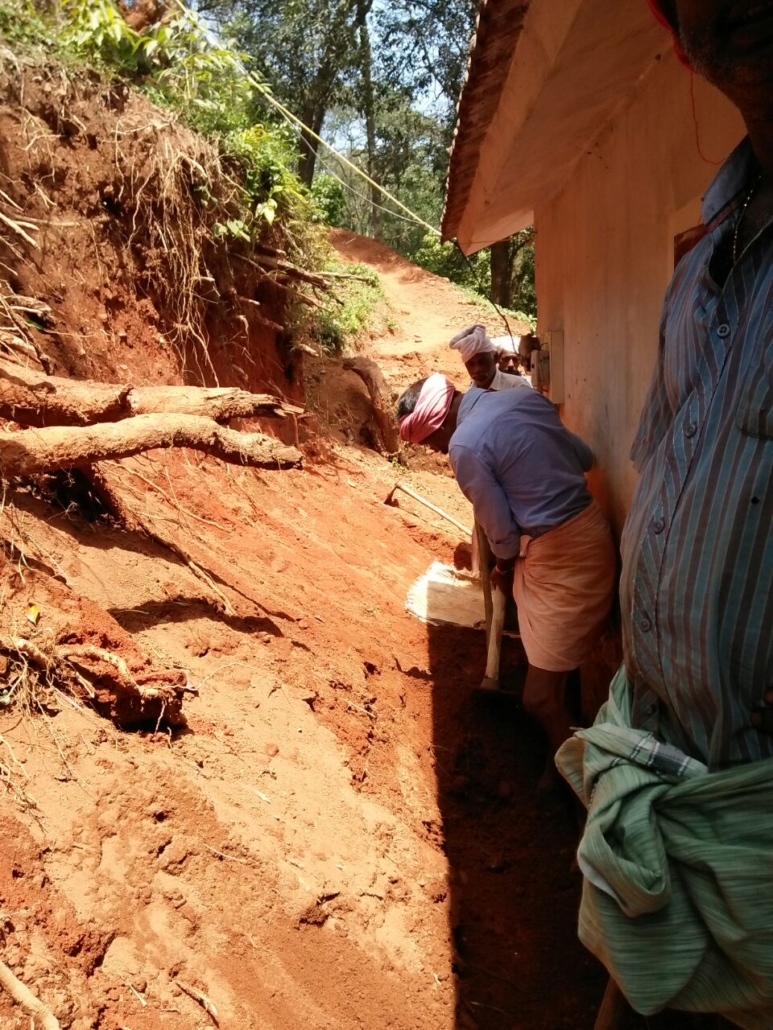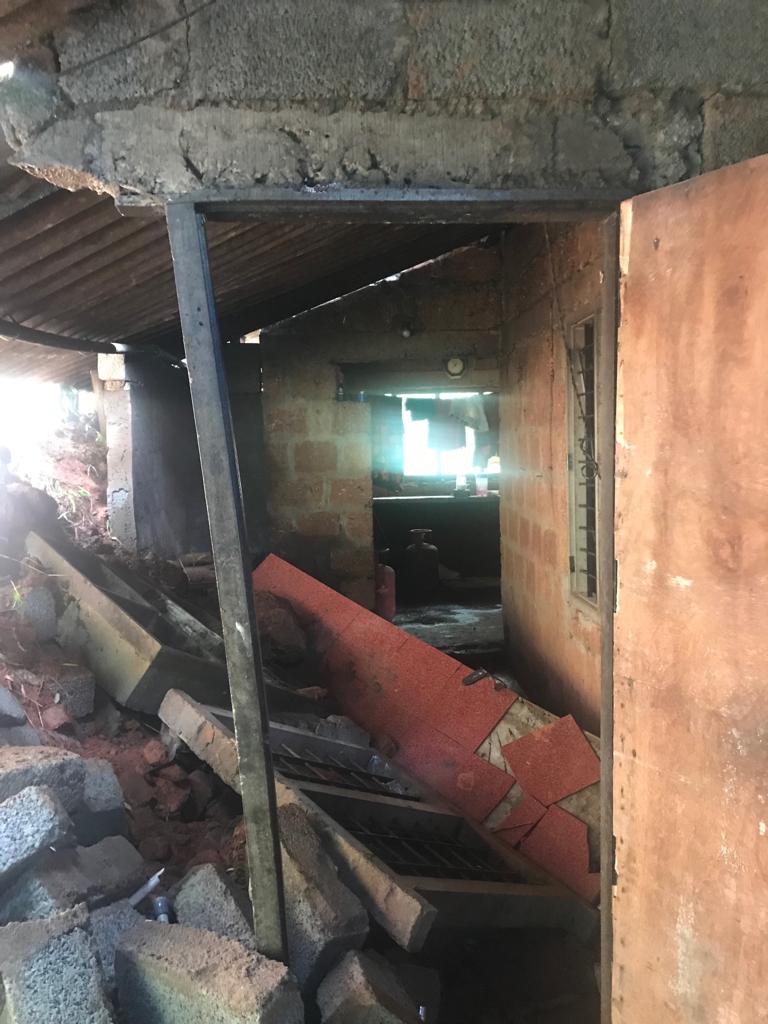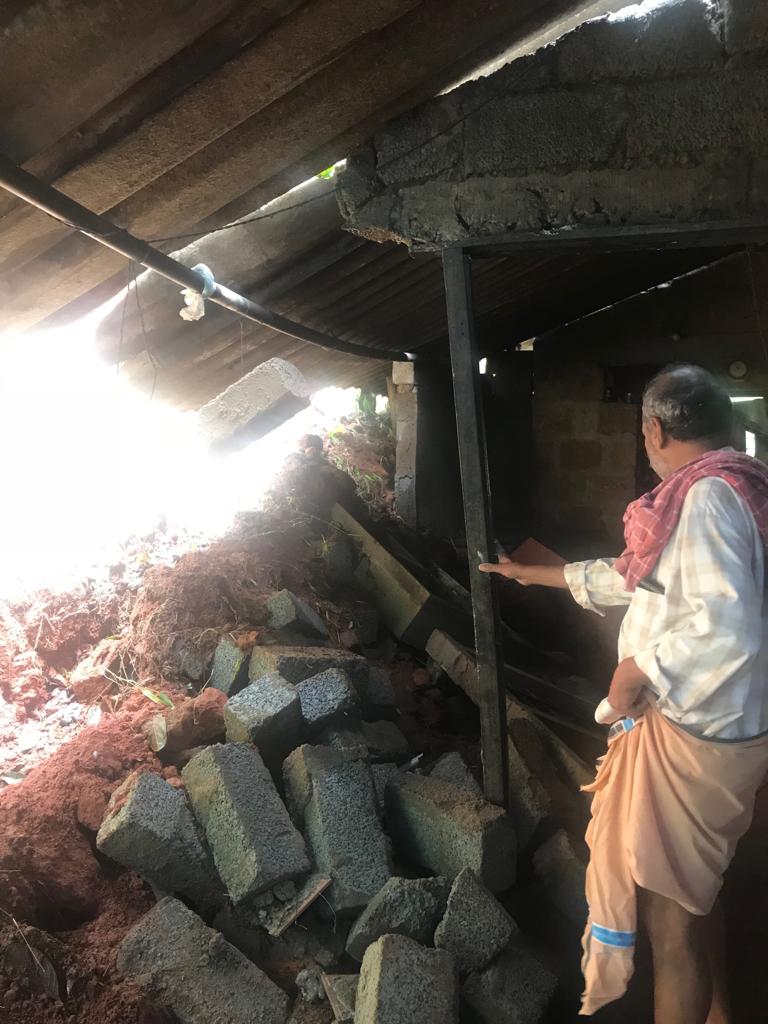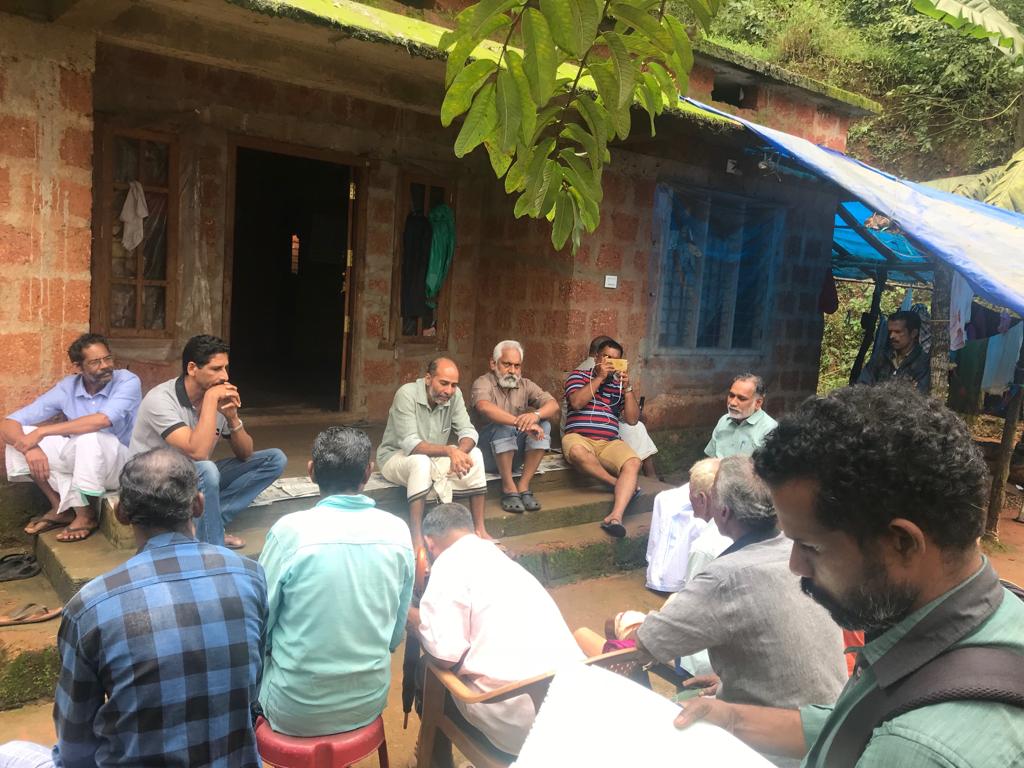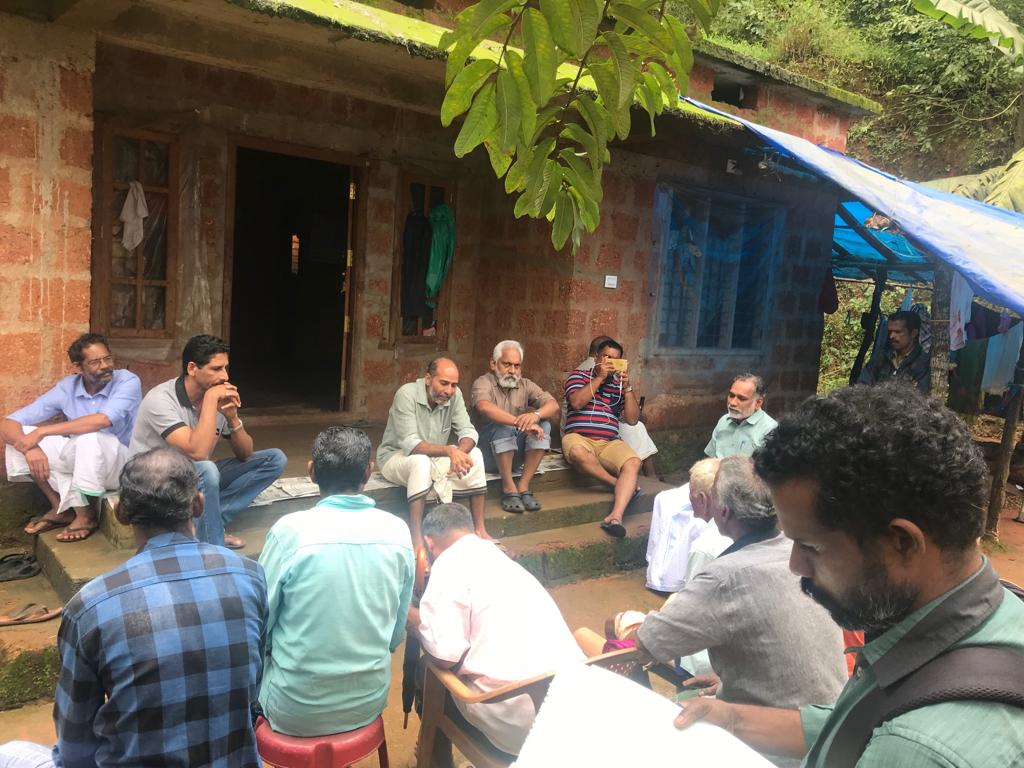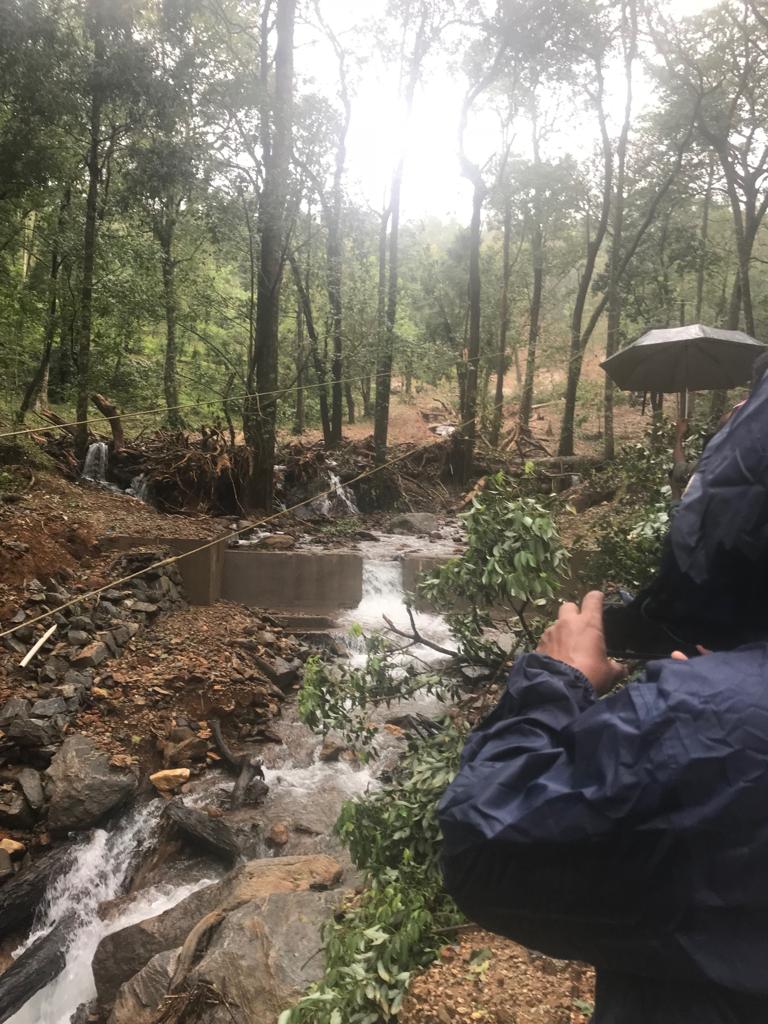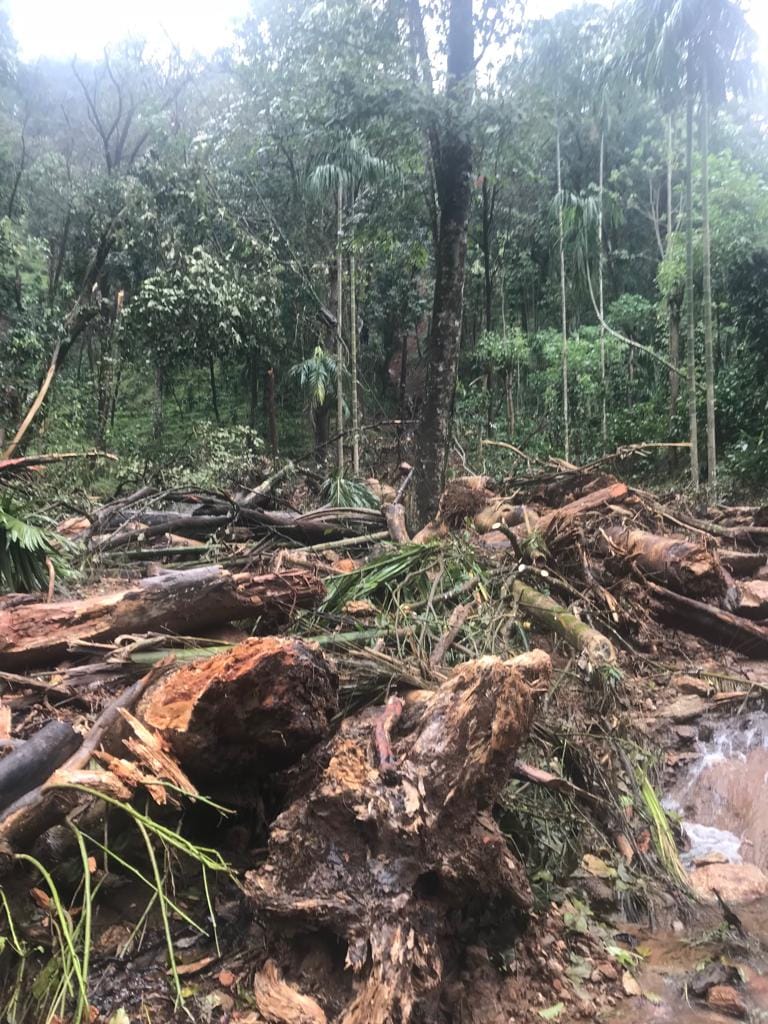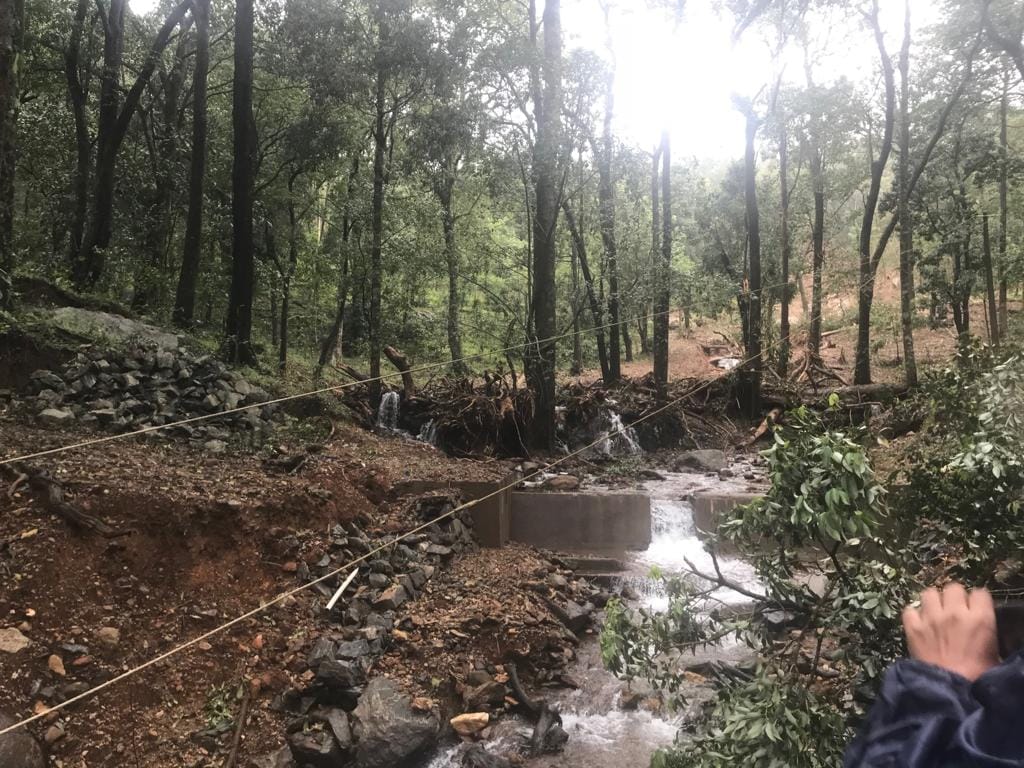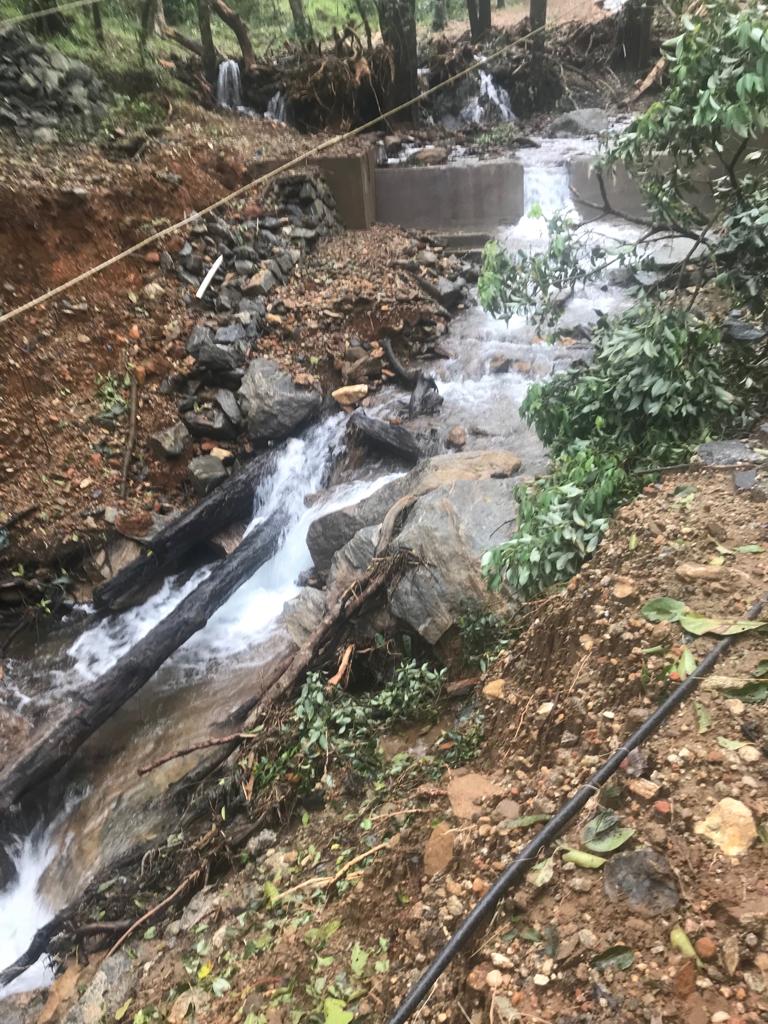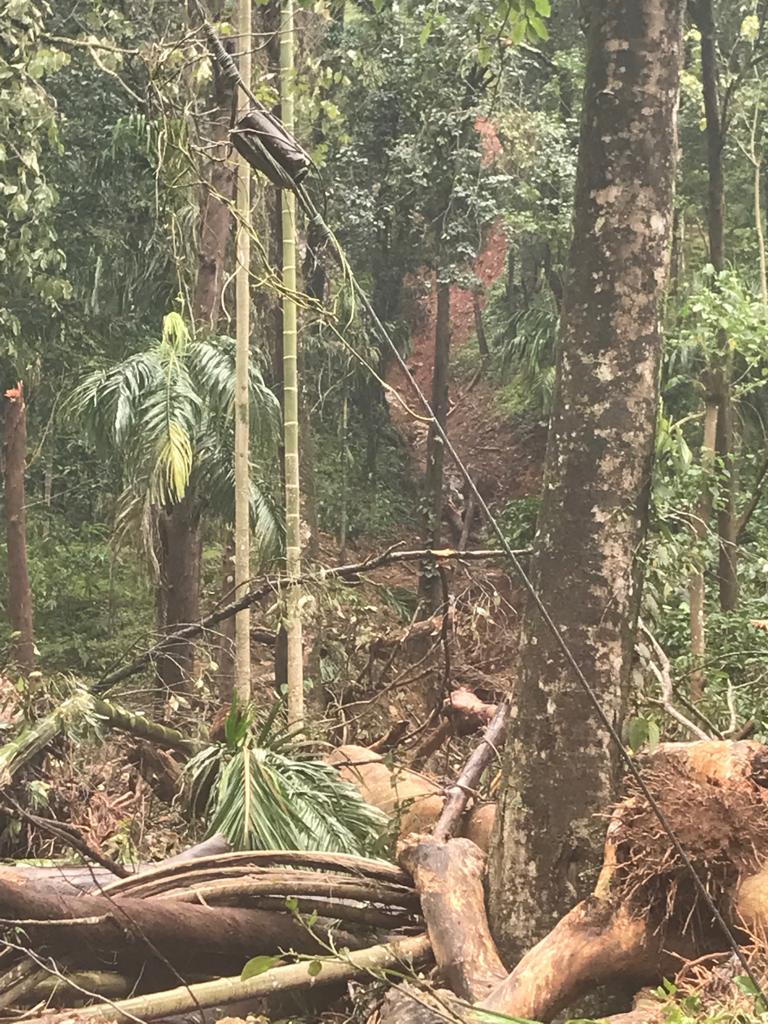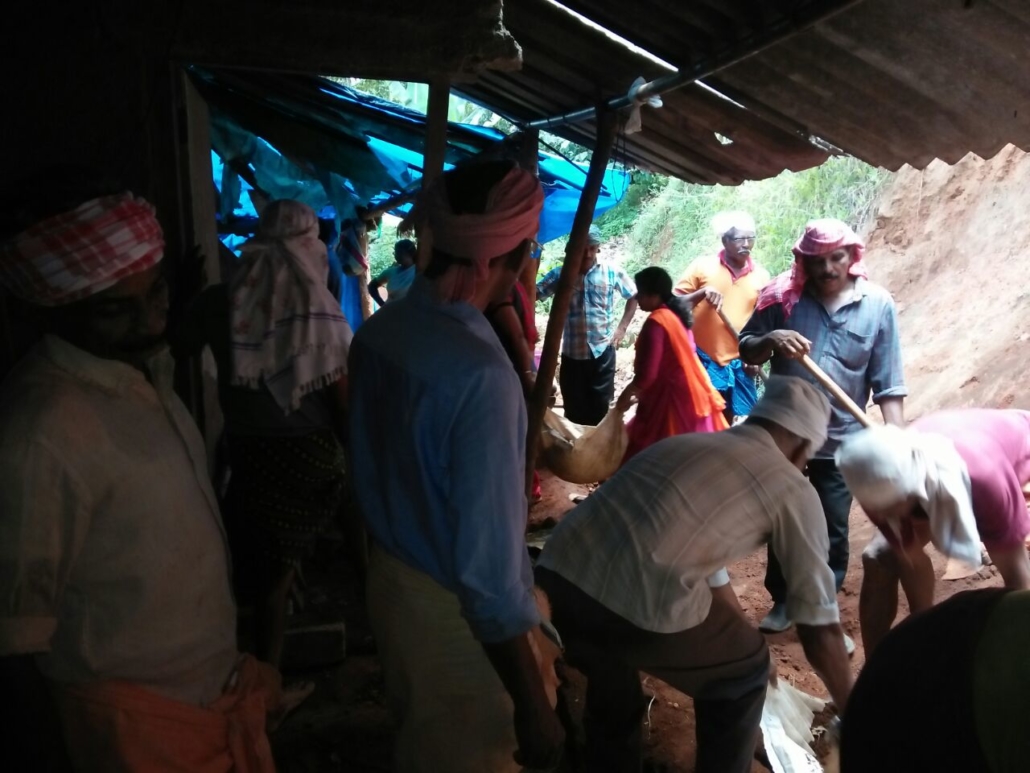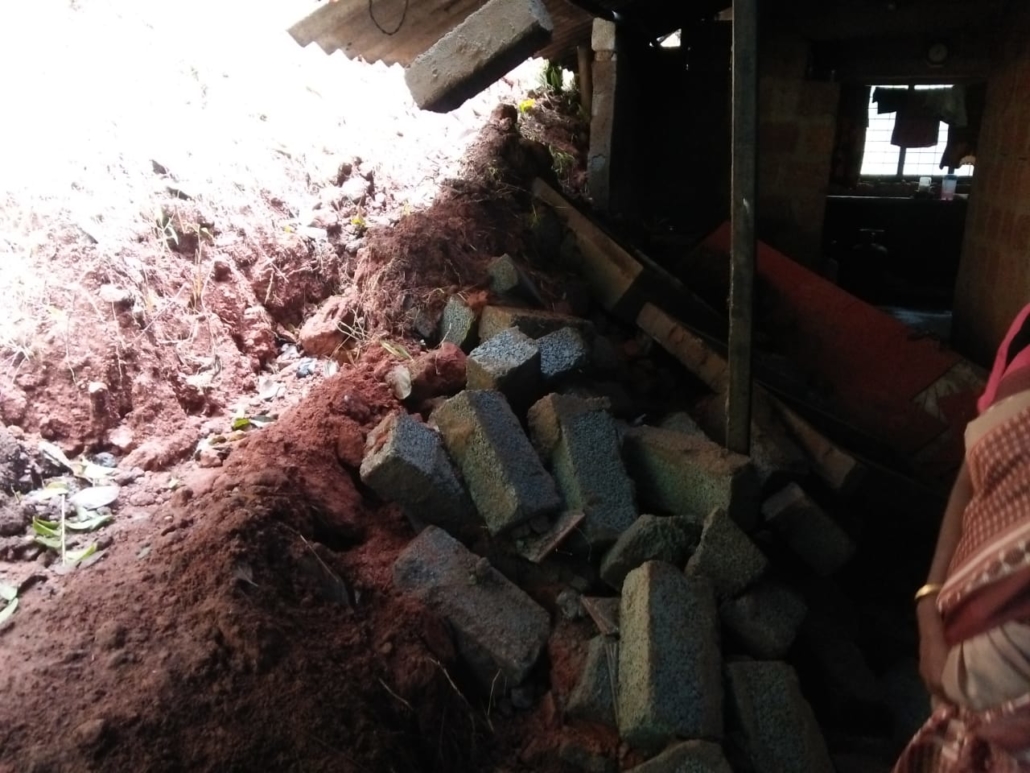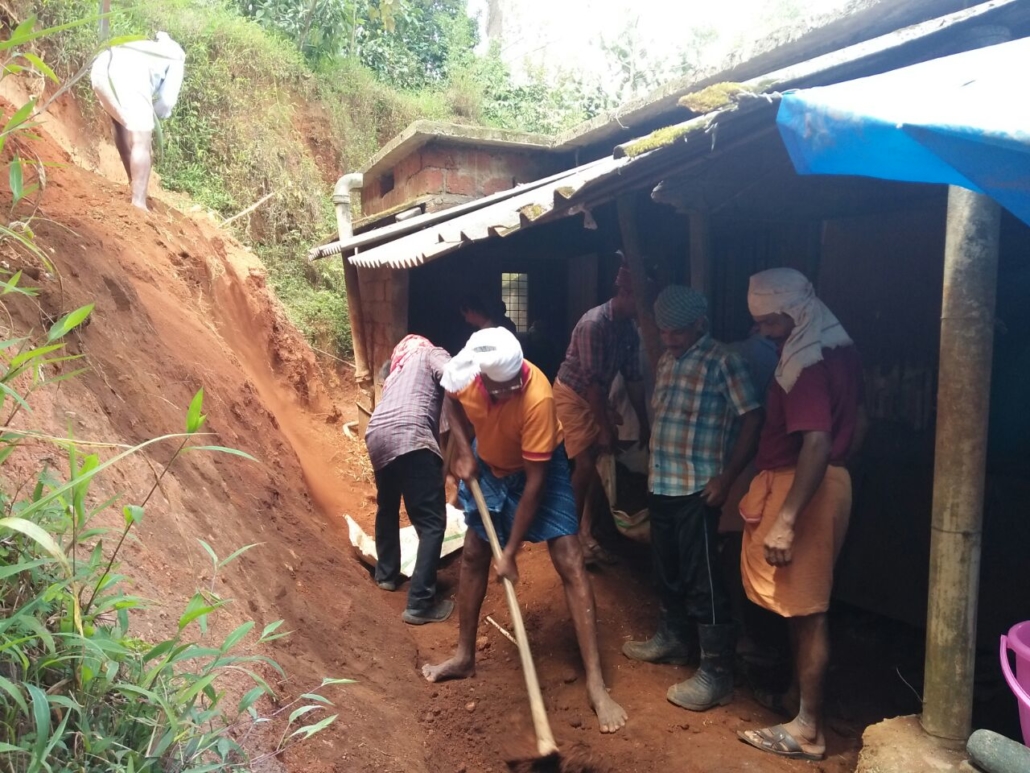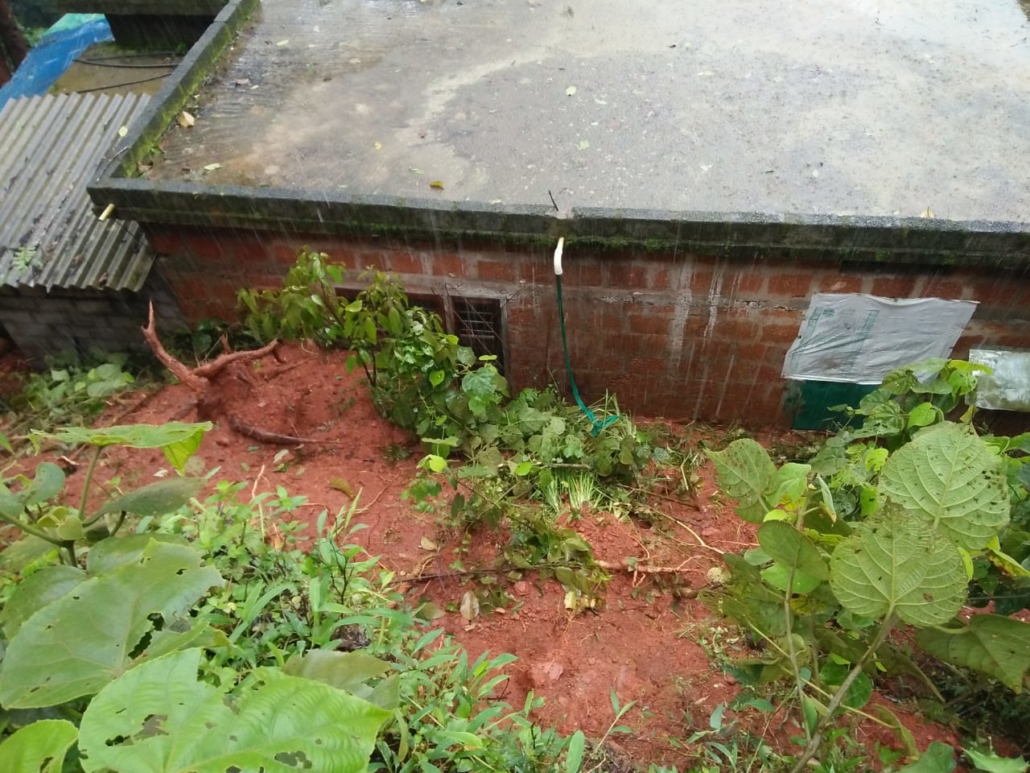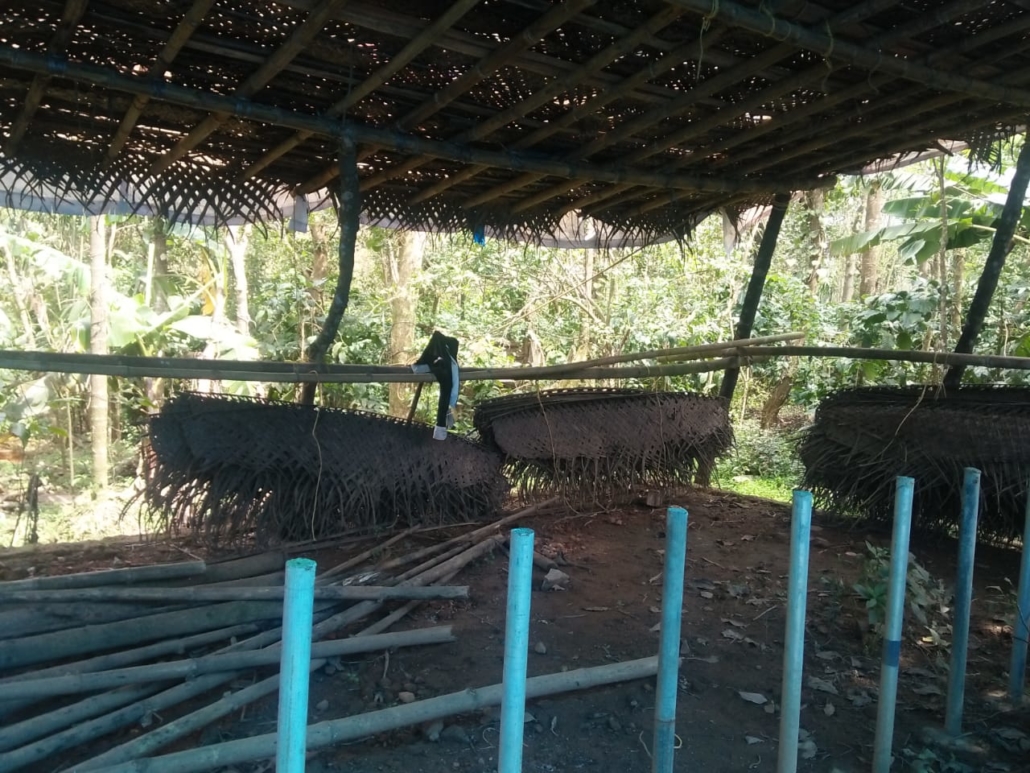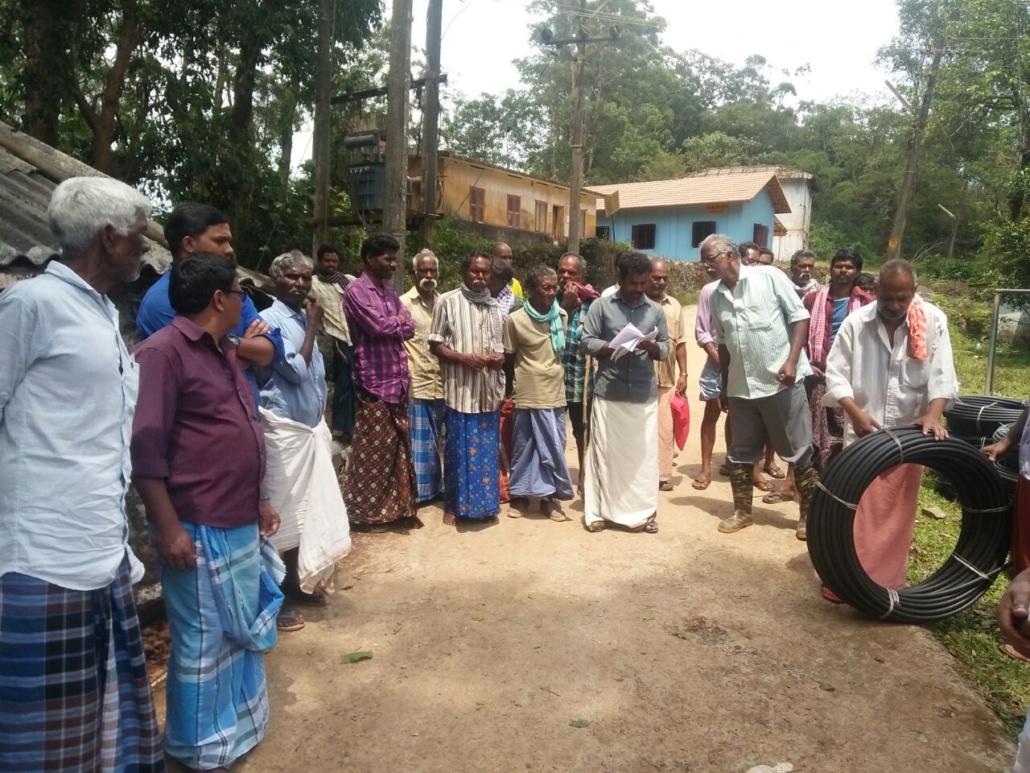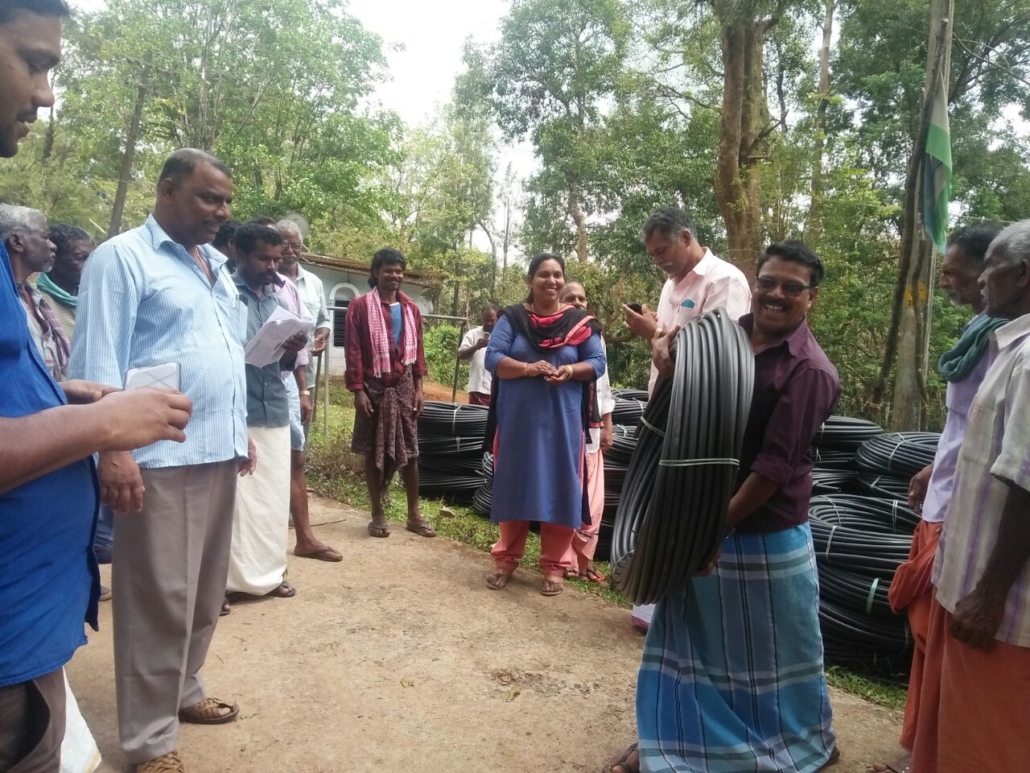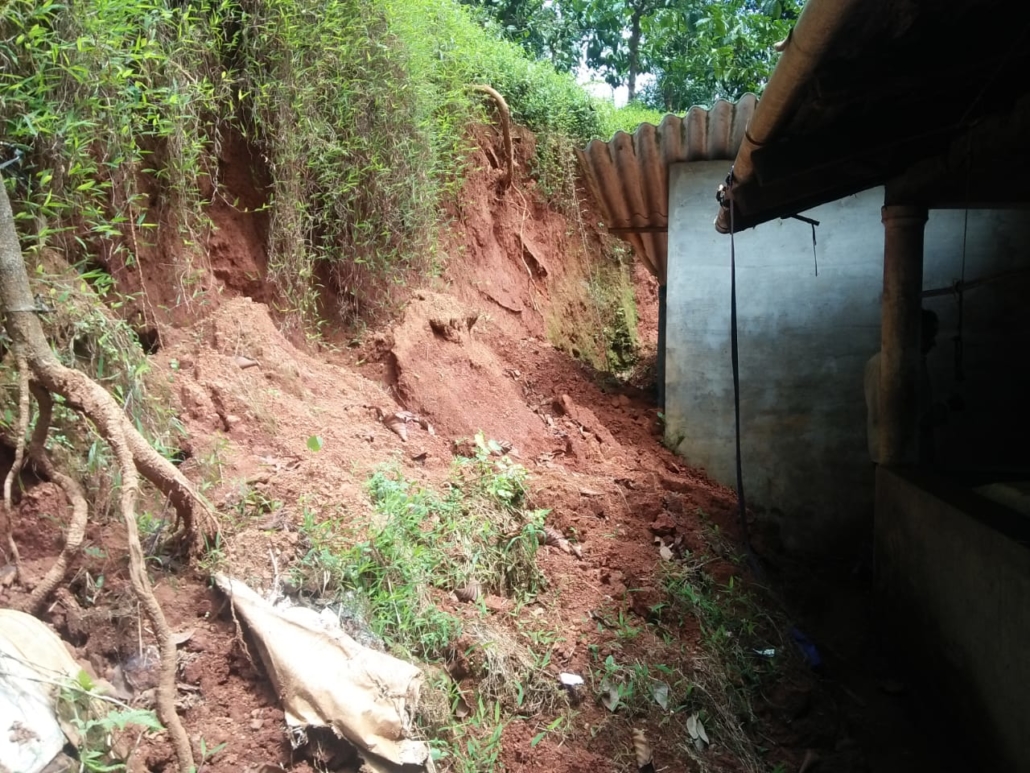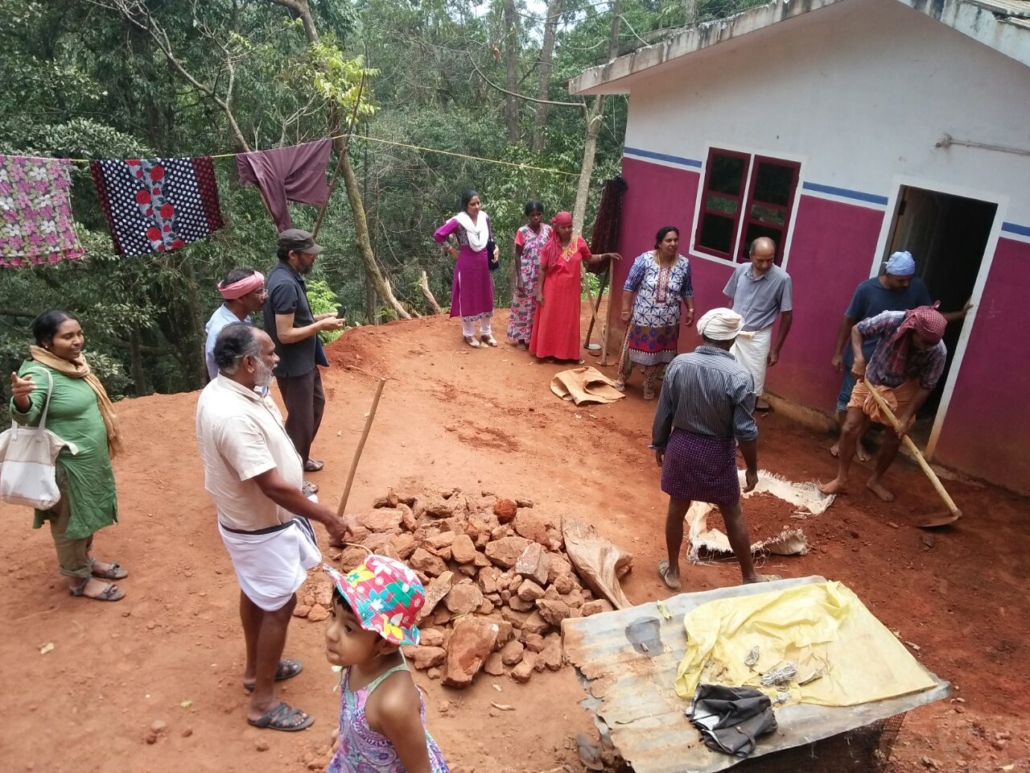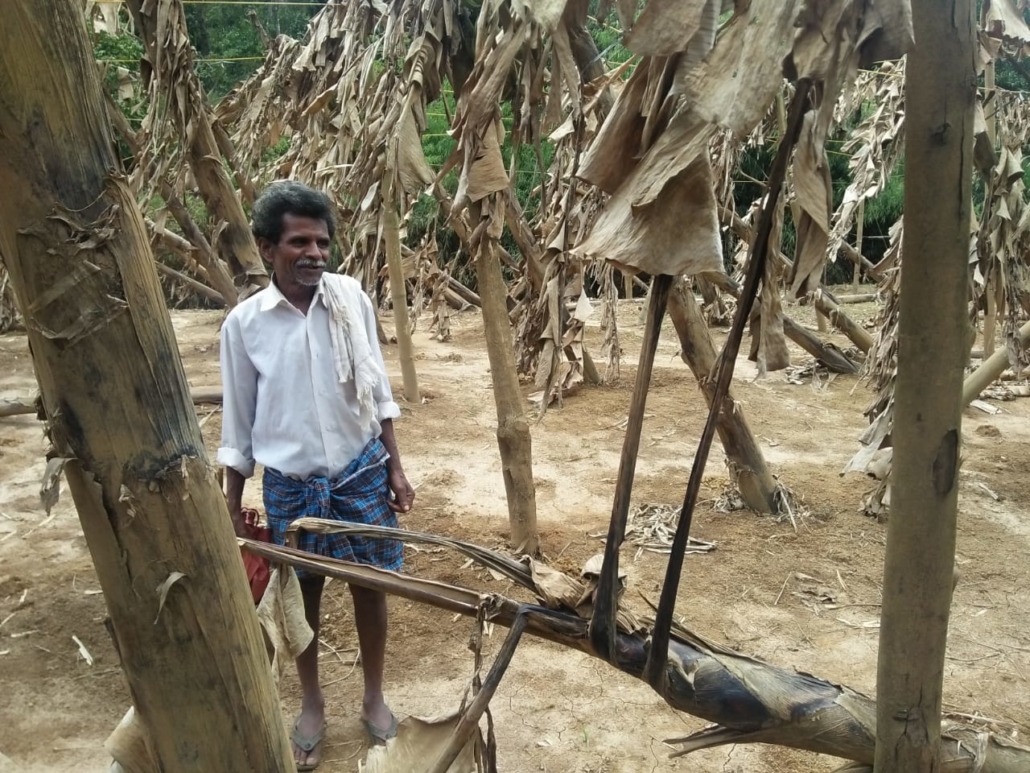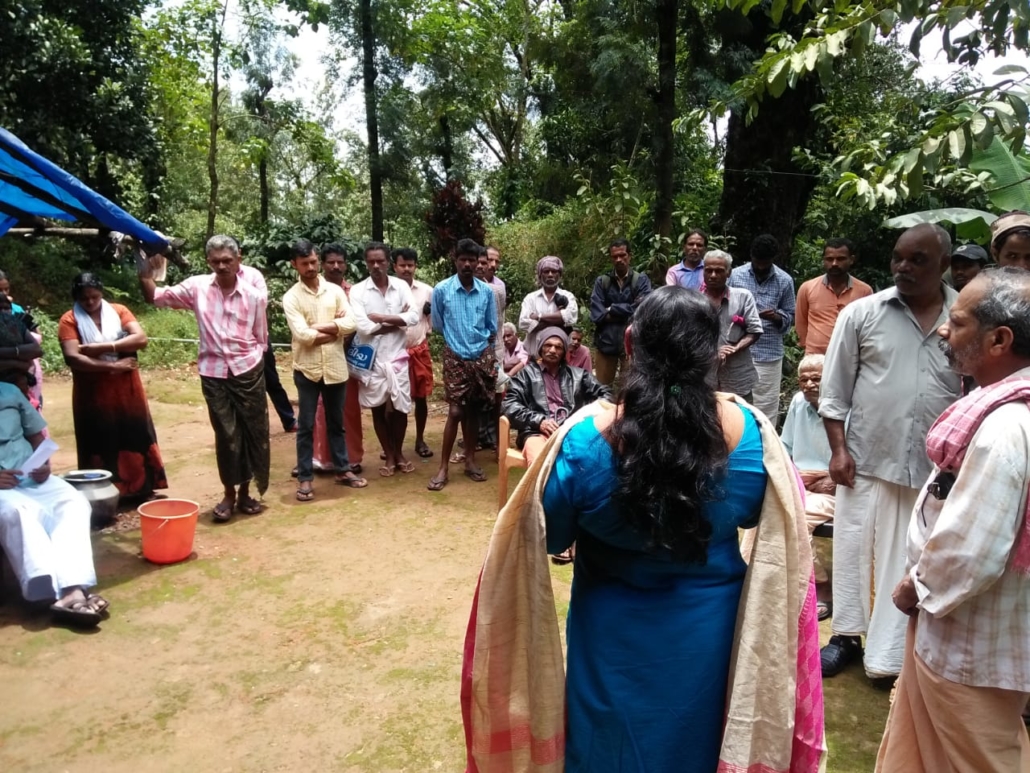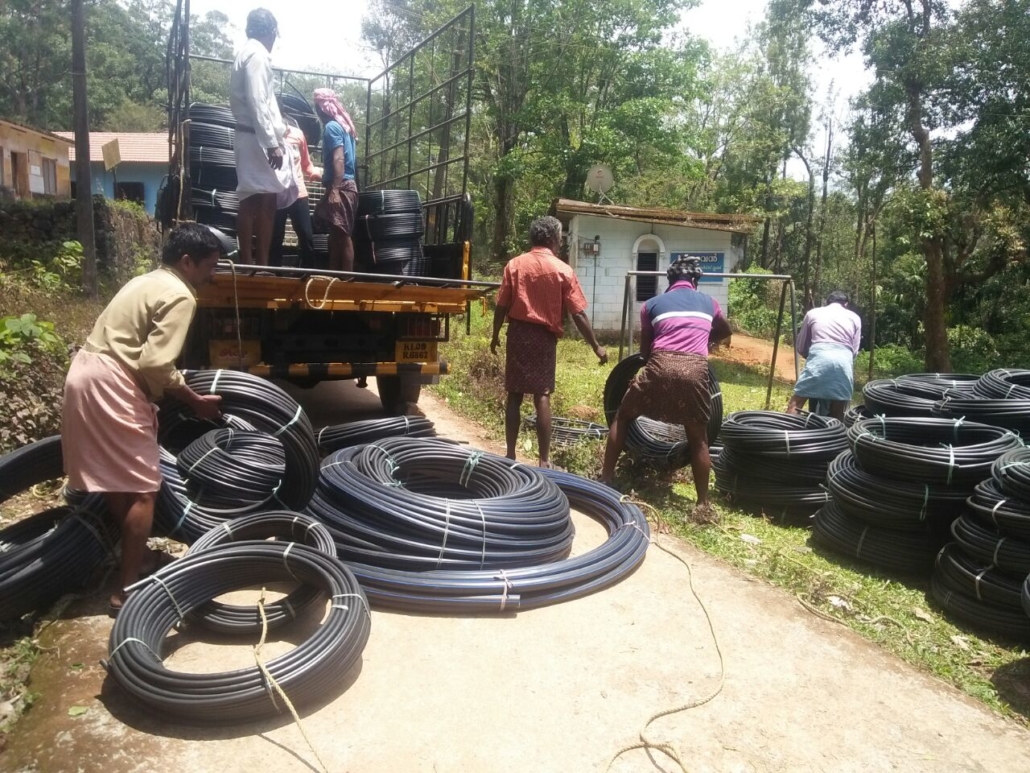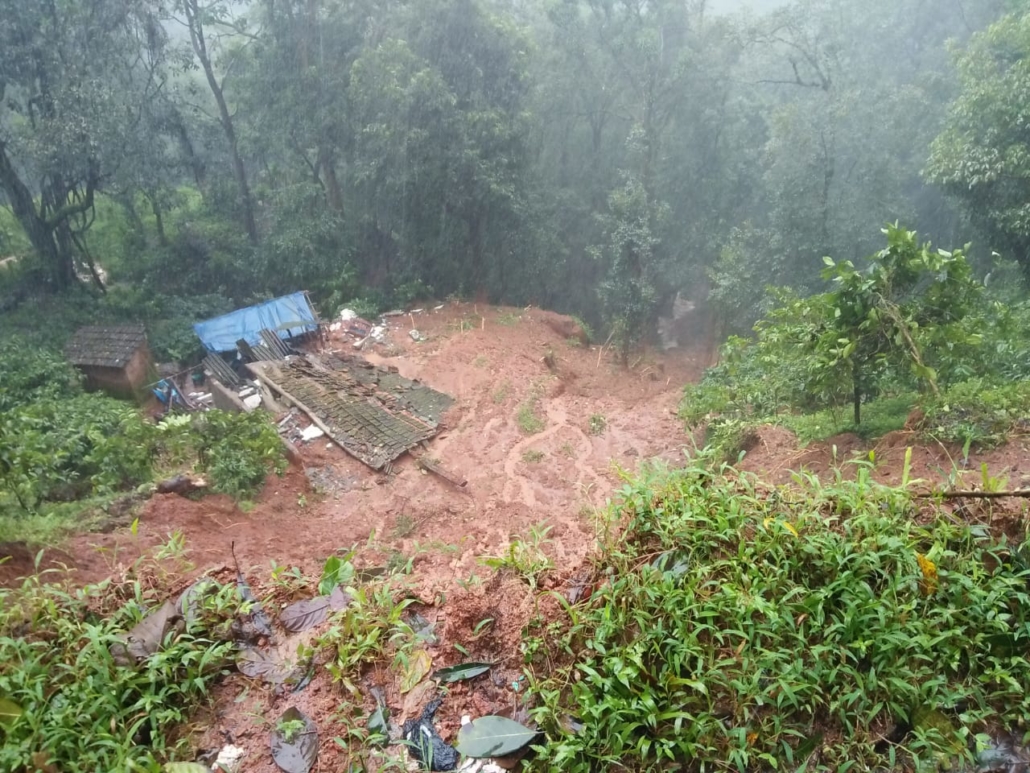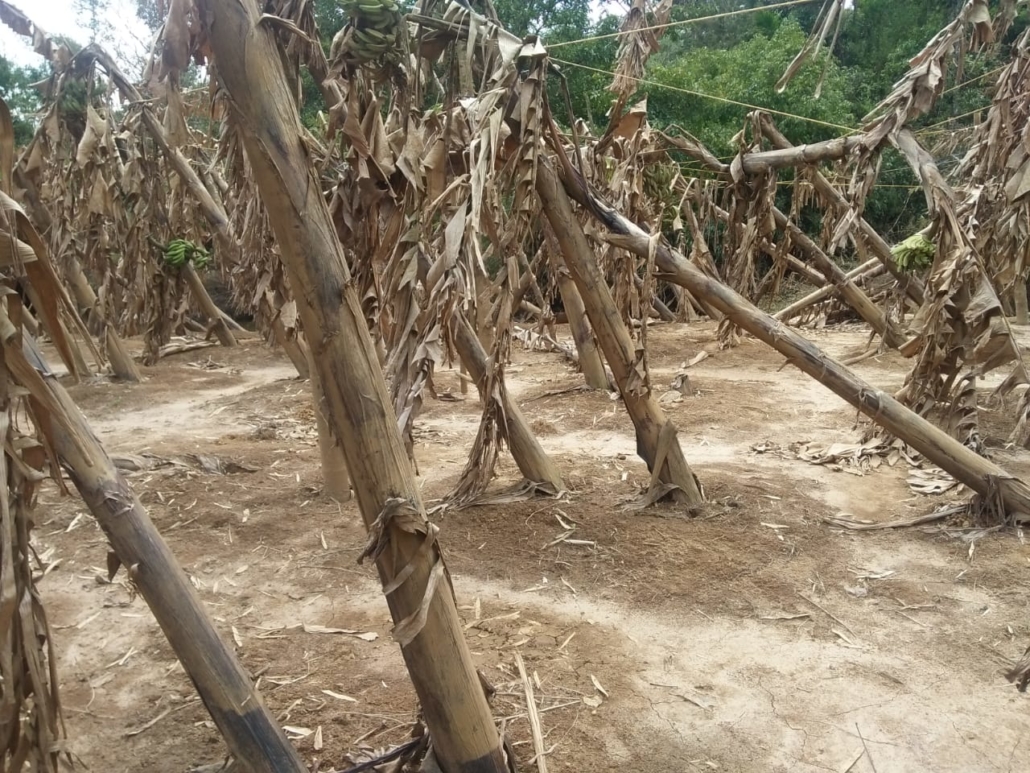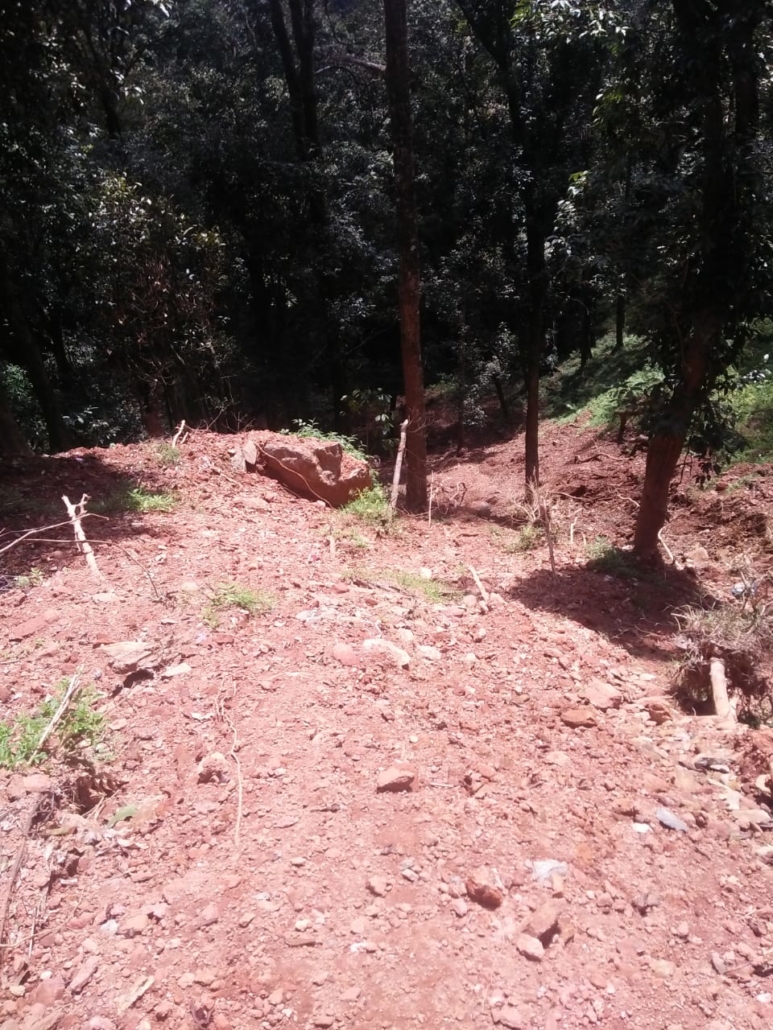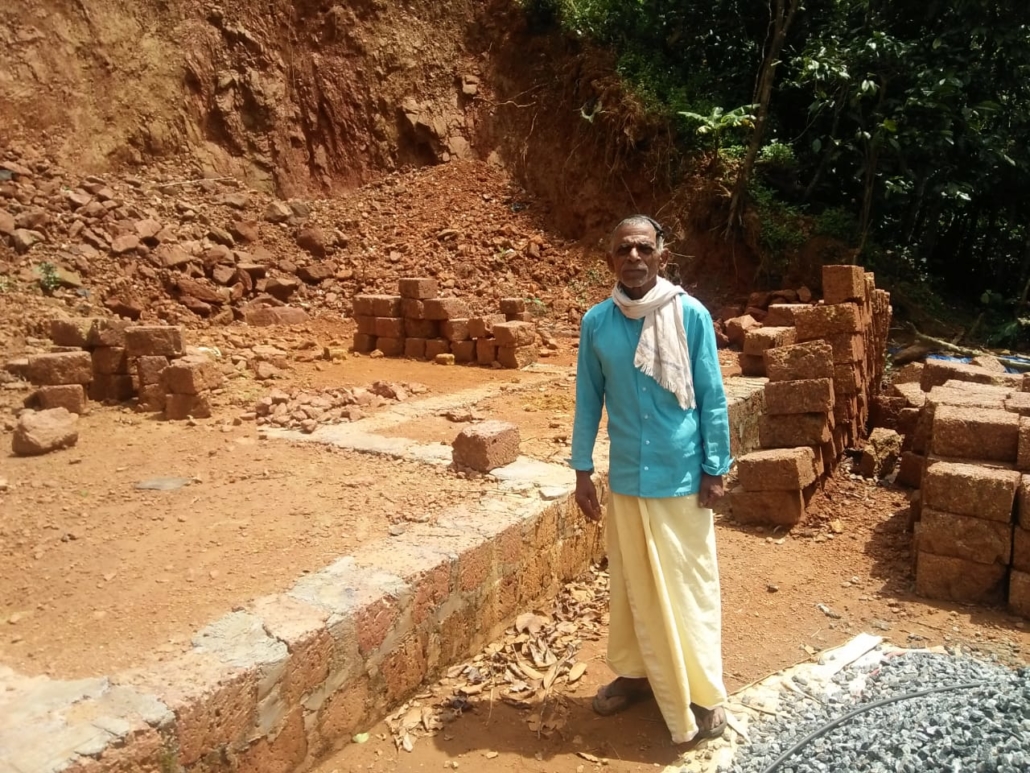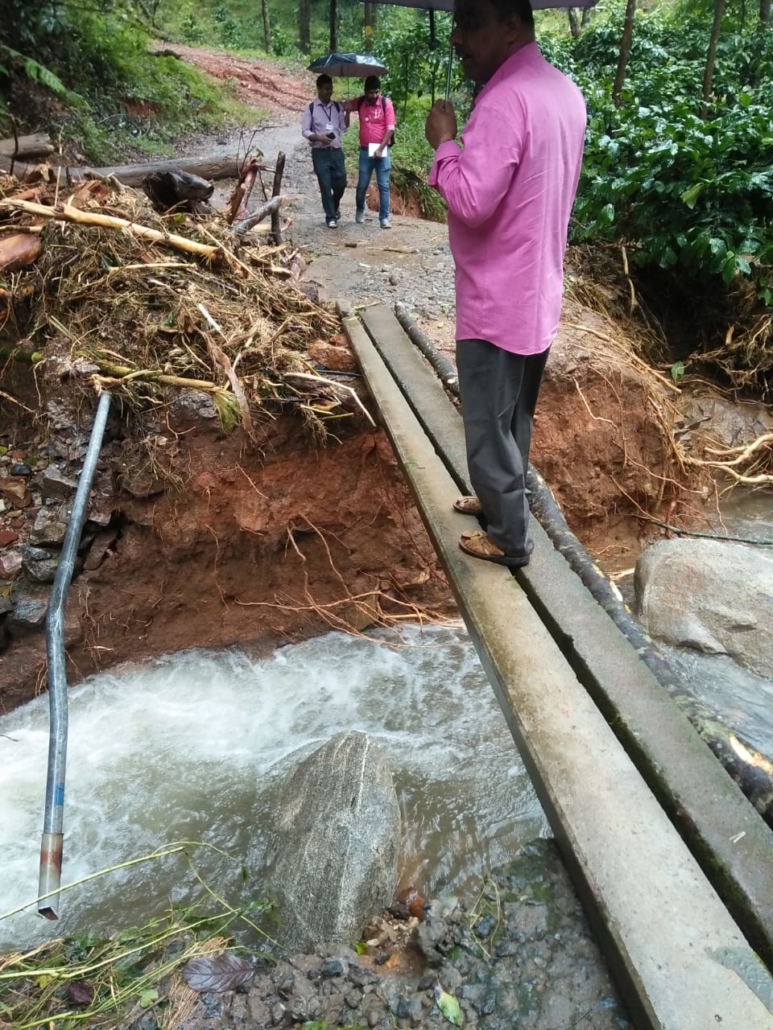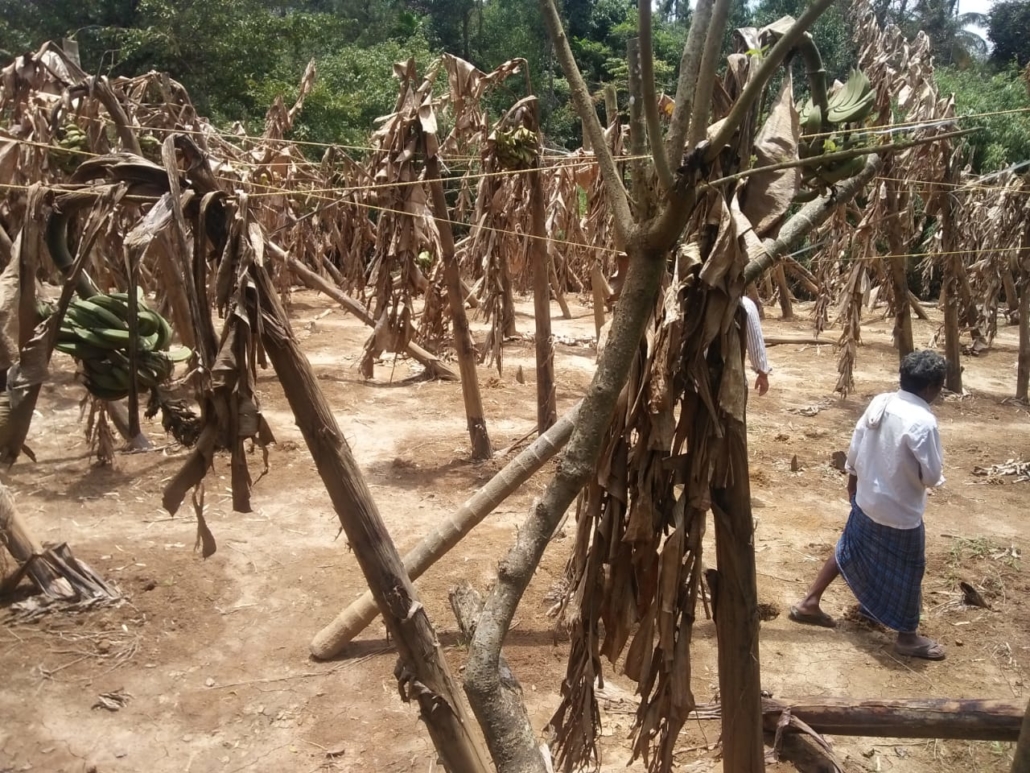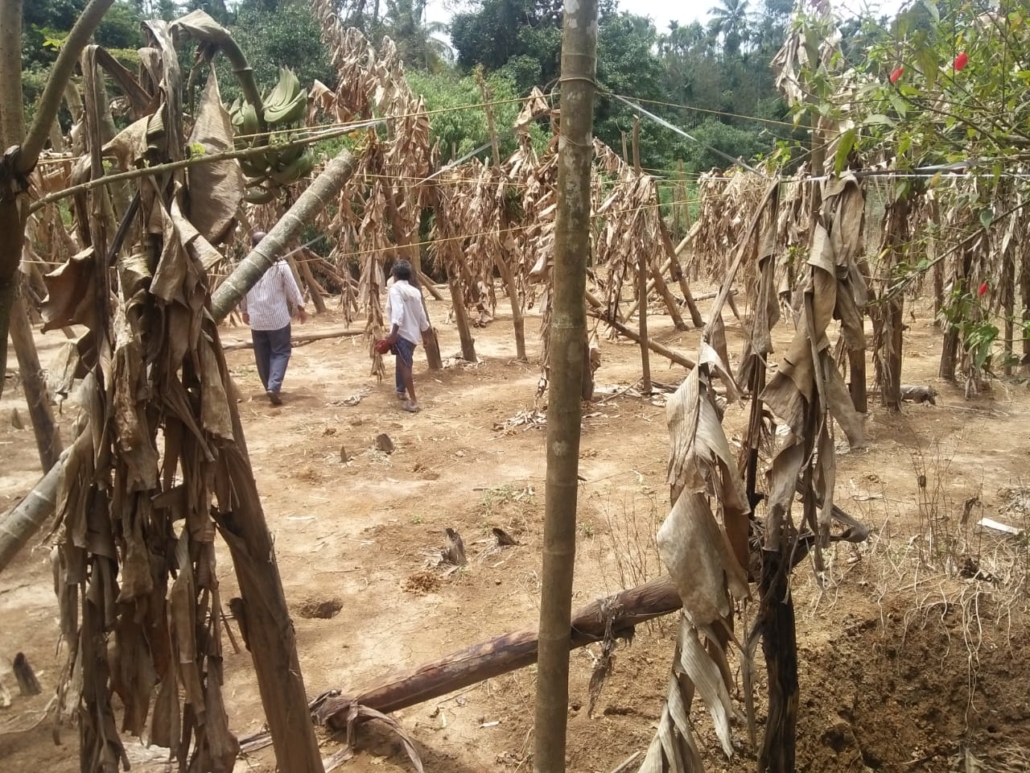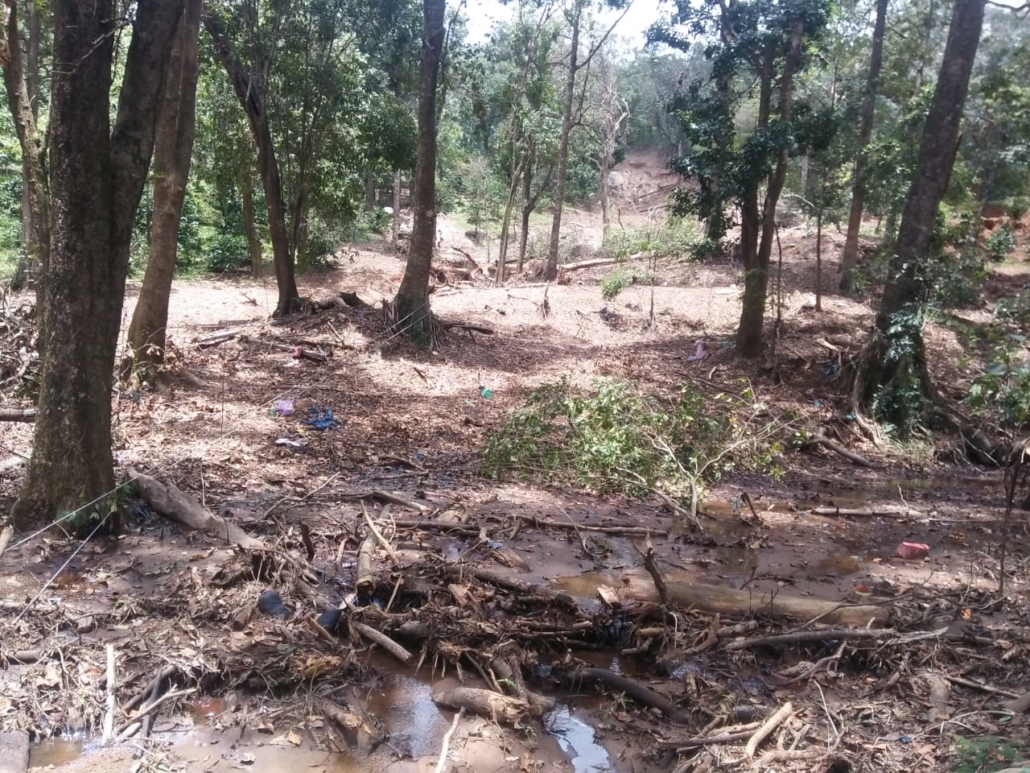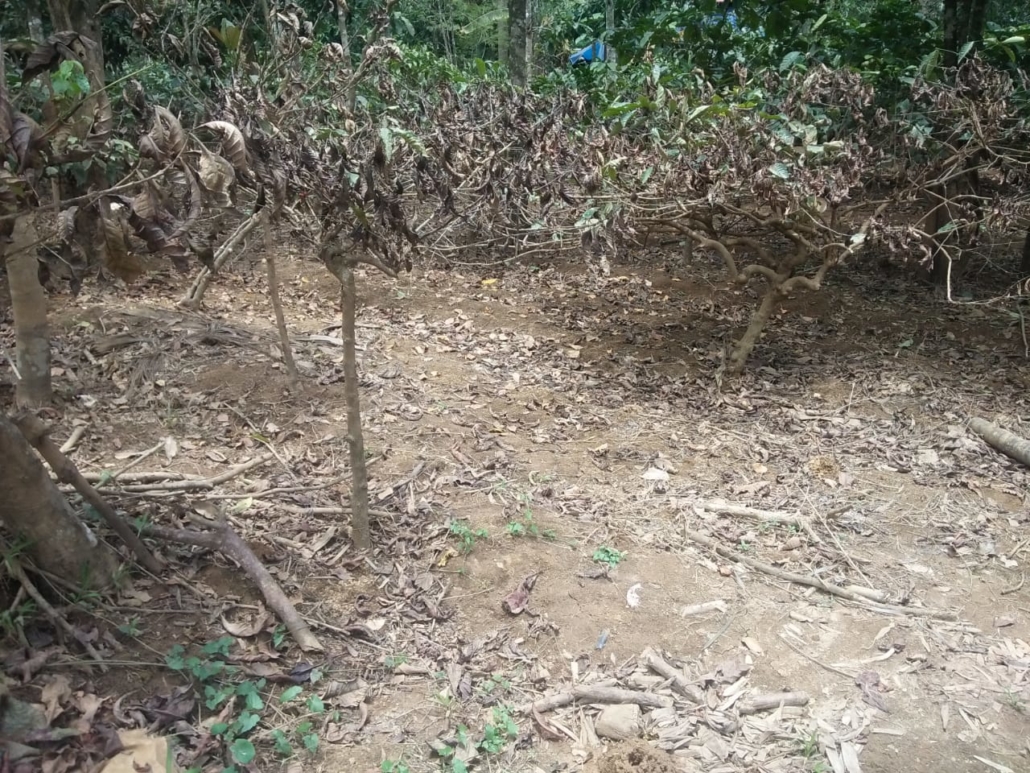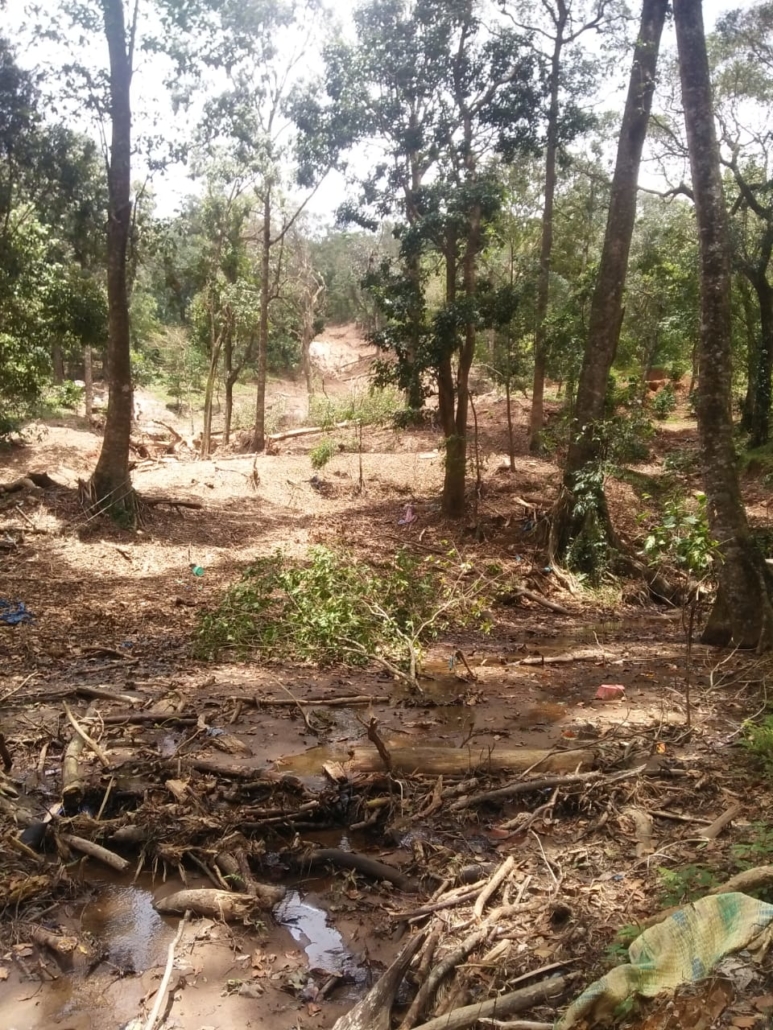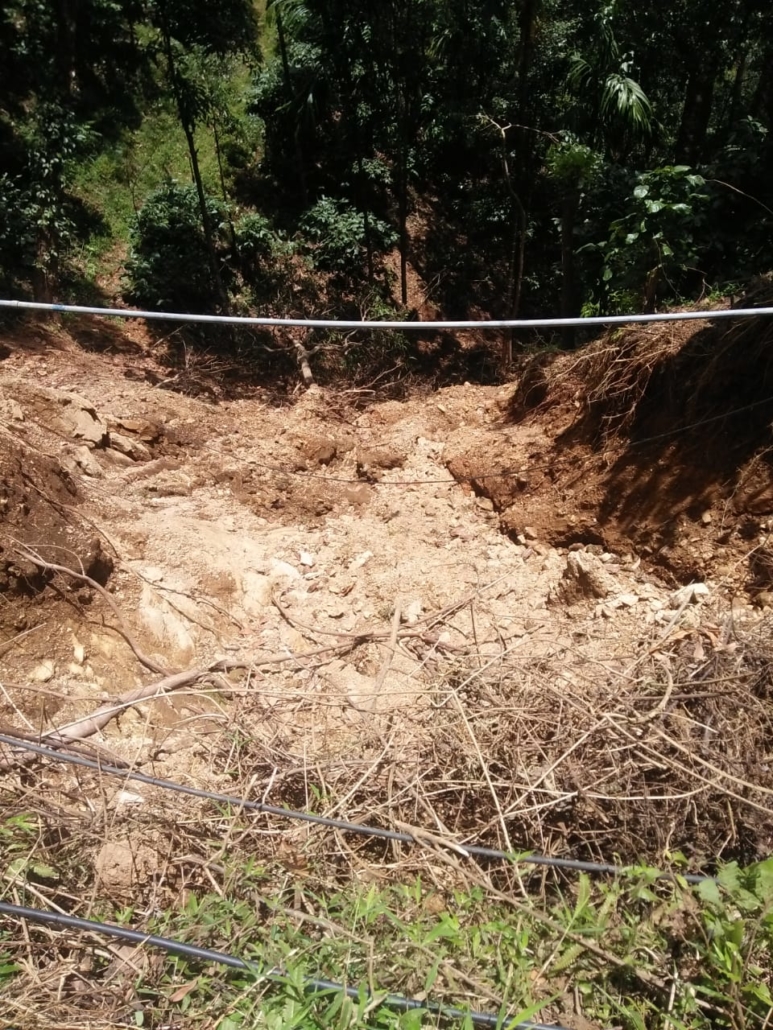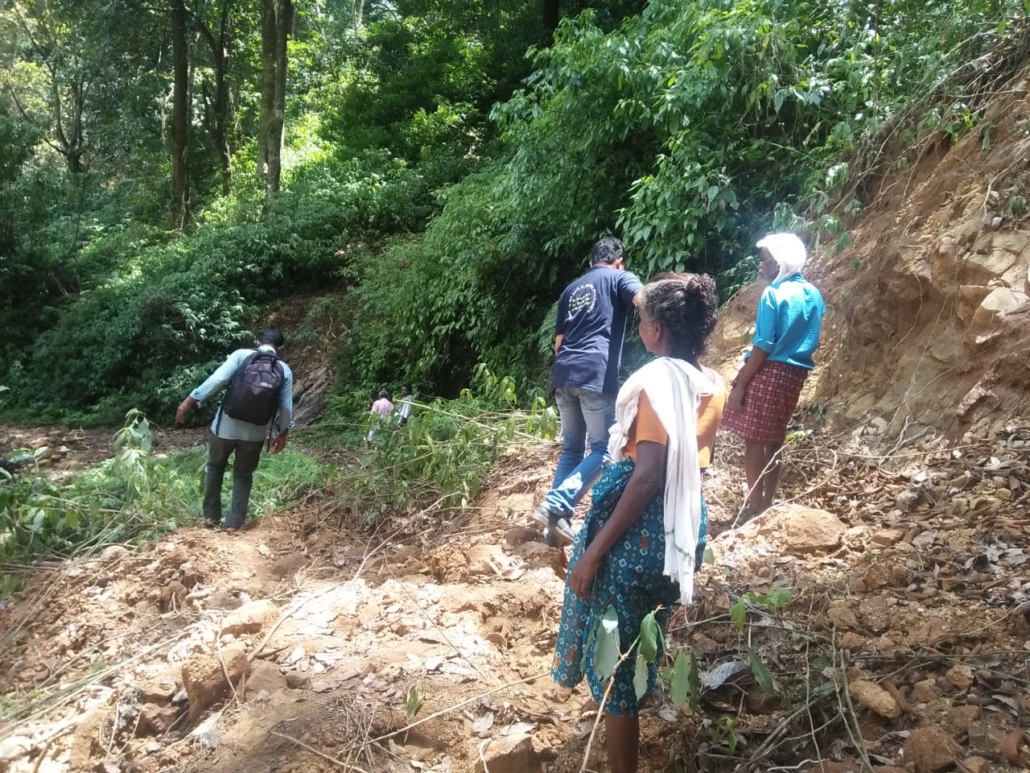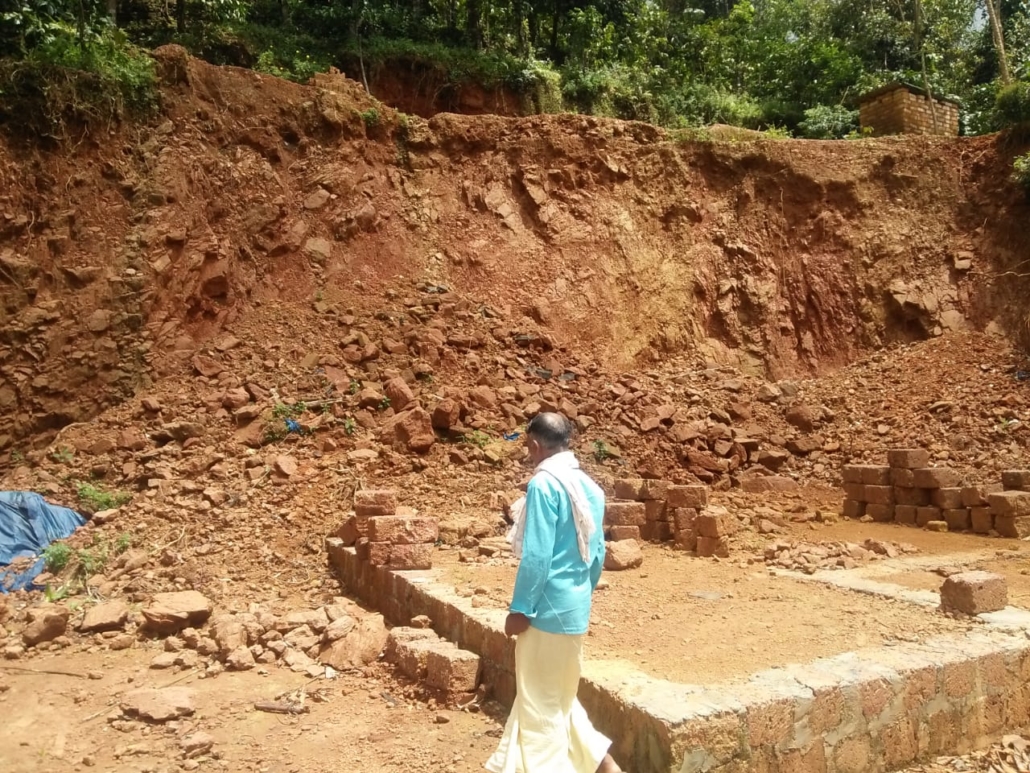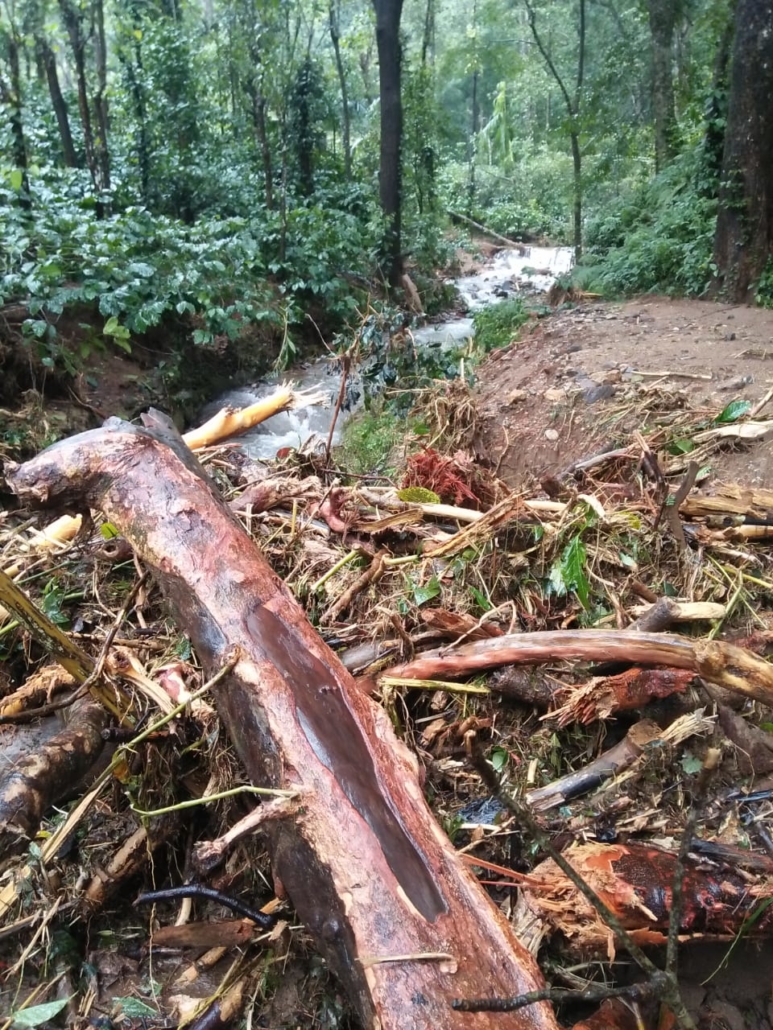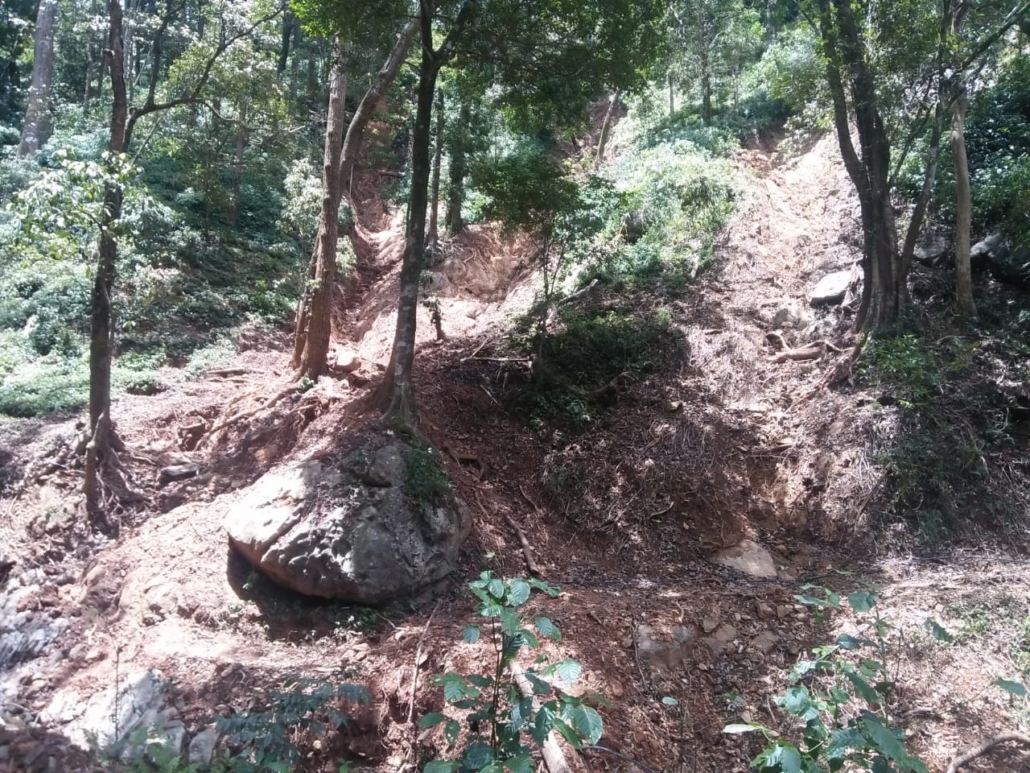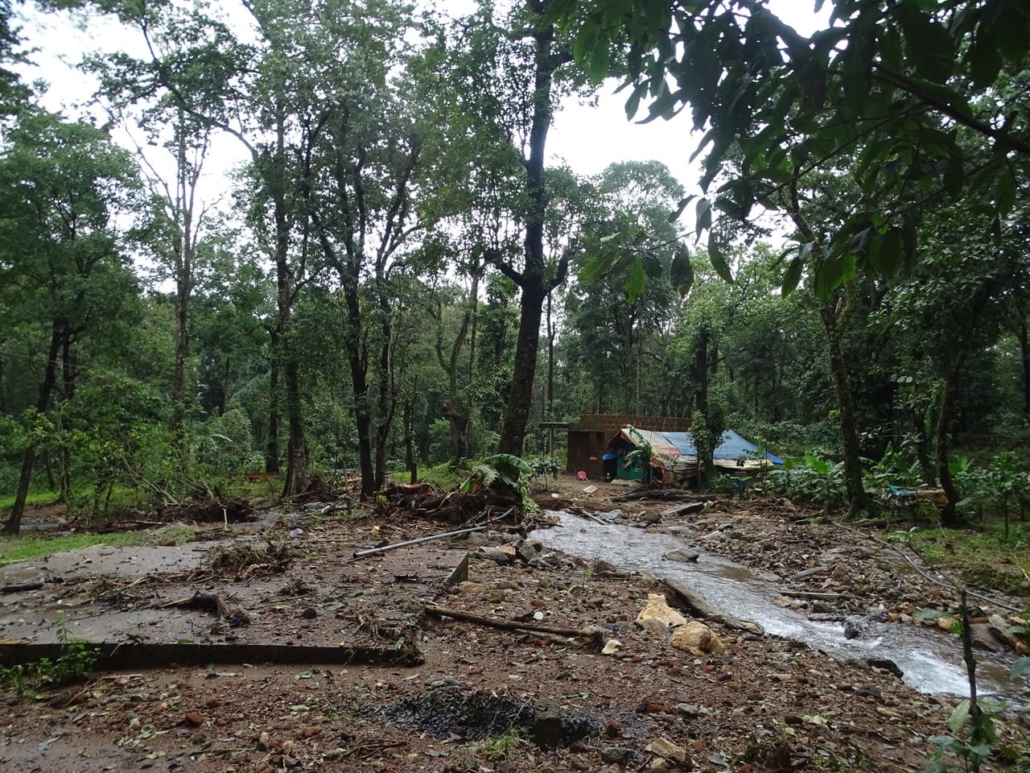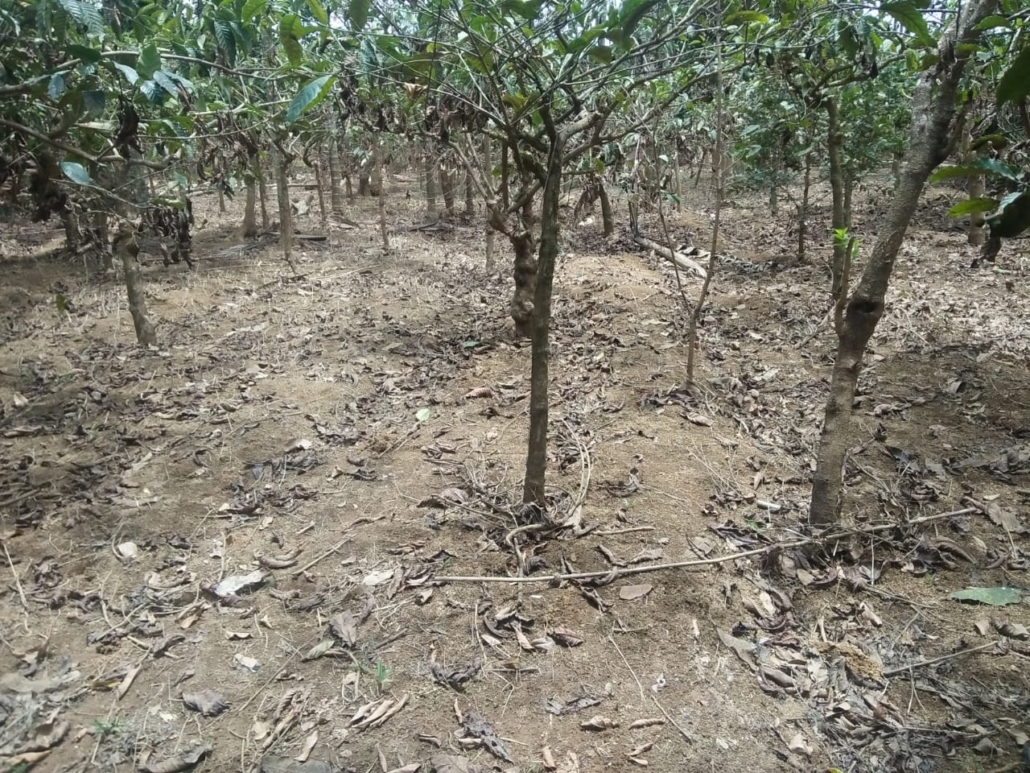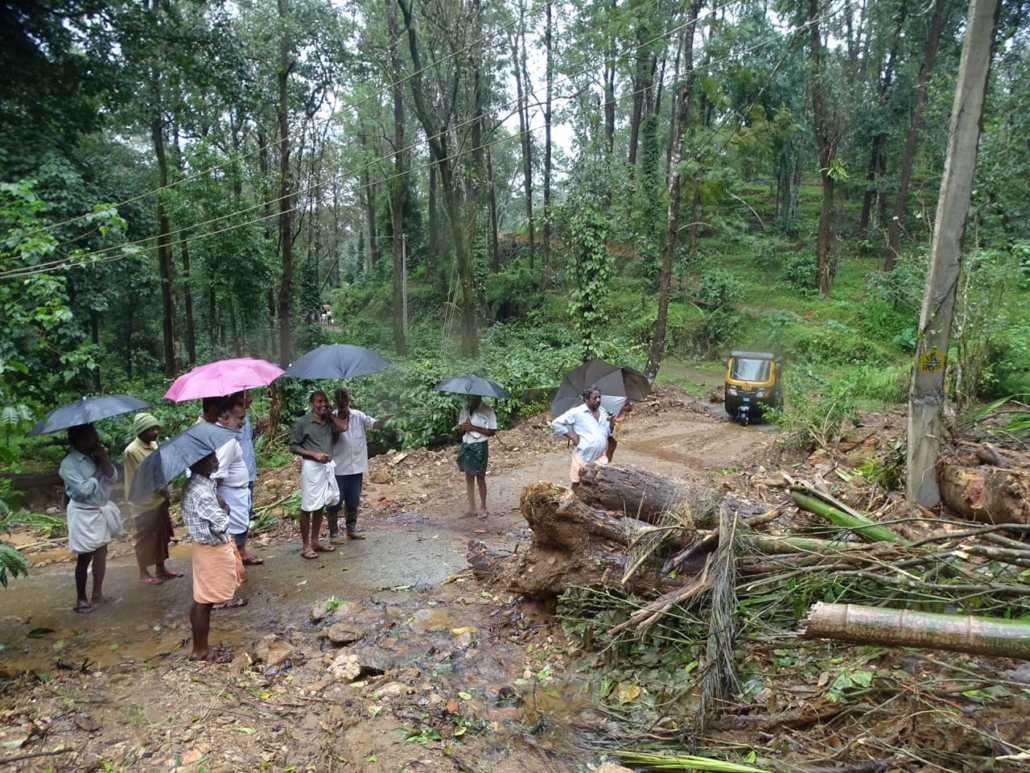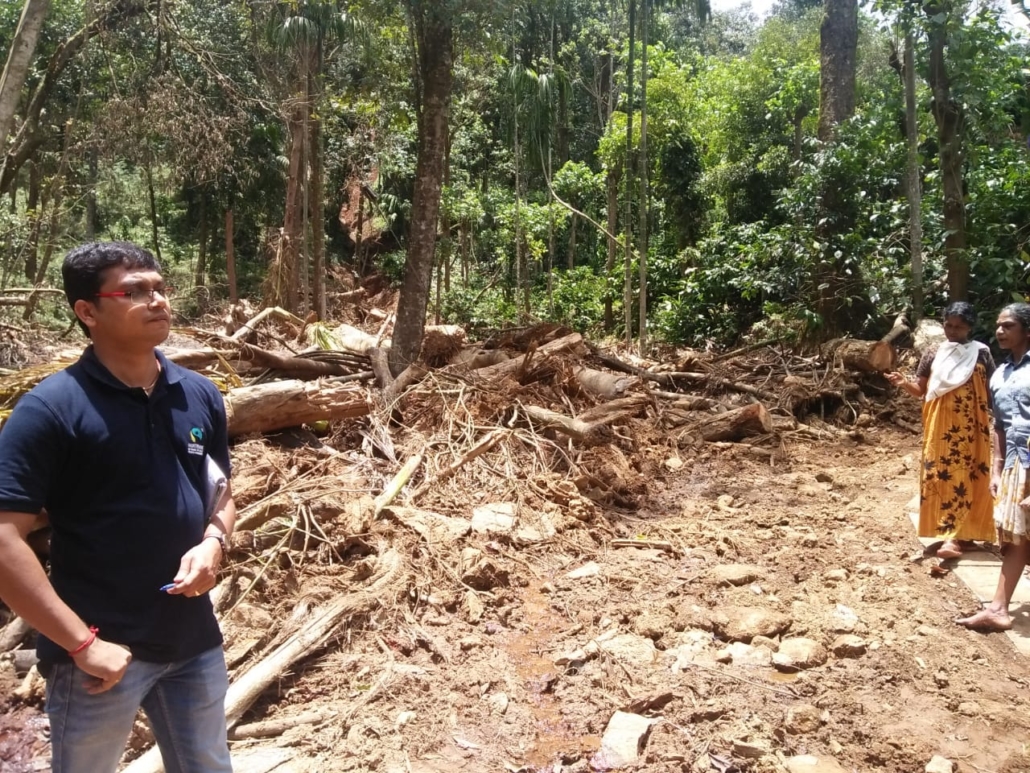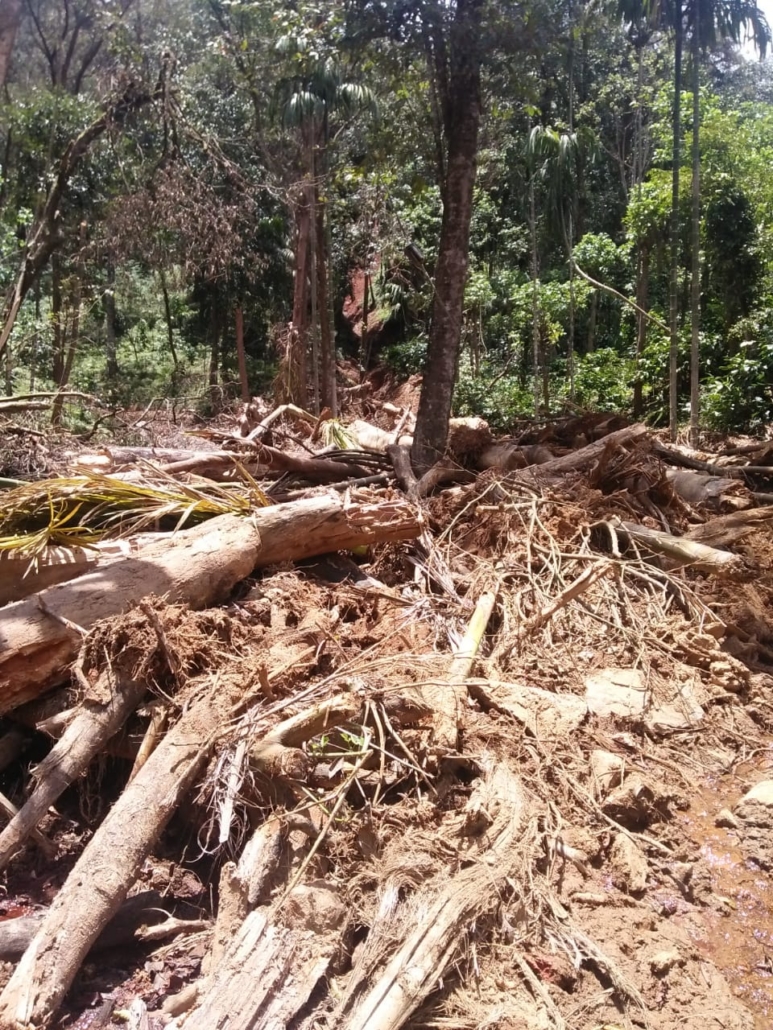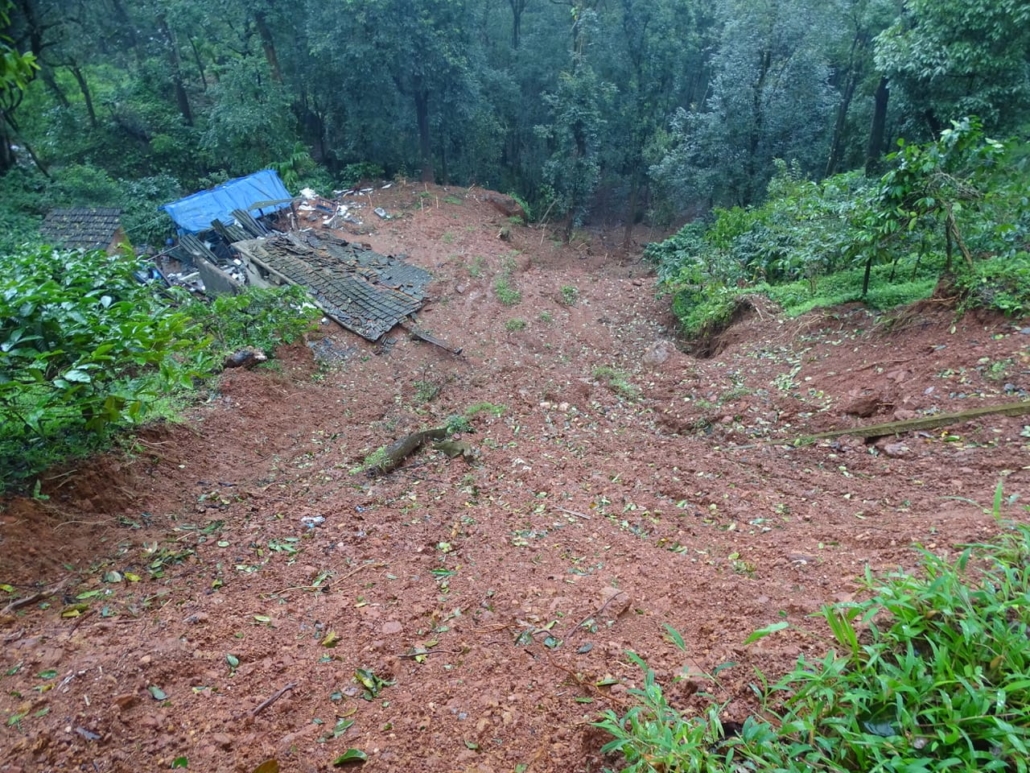REBUILIDING OF THE FAIR TRADE ALLIANCE KERALA (FTAK)
Update on the "Rebuilding FTAK" crowdfunding project
A year ago, the crowdfunding project "Rebuilding FTAK", which we carried out in response to the devastating monsoon rains in southern India, came to an end. In the meantime, resources have been distributed and a lot has been invested in reconstruction. However, the situation remains critical, as the rainy season continued for an unusually long time in 2019. "We are yet to figure out the new normal of climate challenged times," says Tomy Mathew, founder of the Fair Trade Alliance Kerala
Read his full report on the current situation and the measures implemented in the past year here.
Kerala, December, 2019
Dear friends and well wishers of Fair Trade Alliance Kerala,
Greetings.
We are happy to update you again regarding Rebuilding Sugandhagiri, the overarching banner under which we coordinated our relief and rehabilitation efforts, post floods 2018. You would recall that we last updated you on this in February 2019, upon the culmination of our Seed Festival, themed for its 2019 edition as Seeds of Survival. With all your generous contributions having been fully deployed, we thought it important to give you an overview of the way your contributions were allocated under each of our interventions. The report is pictorial and bare facts, but should any of you need more detailed narration, we would be very happy to offer them.
Broadly our intervention efforts, which initially focused on bringing immediate succour to the most adversely affected, shifted focus in time to addressing its longer term impact, particularly those that related to income loss, yield loss, soil loss and damage to long term crops. The most significant outlays have been to compensate for crop losses both by increased price support for crops procured and funding for new saplings and planting material. The second most significant outlay was in investing in ancillary farm income – be it livestock or beehives. Soil restoration is a long term work and need to continue several years in to the future; we have begun modestly with distributing planting material that are proven effective in holding topsoil. The work on this front involves daring to address critical questions of land use and are fraught with policy and settlement implications – you are likely to hear from us on this matter in the future.
Many of you enquired about the situation post the torrential downpours in 2019. Yes, it has been two years of back to back floods. And there is no telling, how its impact will be on long duration and perennial crops. Practically, last year there was no demarcation of the standard two months gap between the South West and the North East monsoons, otherwise two distinct rain spells of Kerala. We are yet to figure out the new normal of climate challenged times. It has not helped either that our order positions, of cashews and spices especially, have more than halved, so there is unsold stock we are sitting on. It is just a coincidence, but some of our long term fair trade partners have chosen this time to review whether small producer centric supply chains is sound business strategy!
Are we a despondent? No. But this is a critical and challenging time. But we are coping and like all small farmers are weathering it out. To give you a sense of the hope we share: This month, we will hold the annual seed festival, our assertion of revival and regeneration, in to its 9th edition. This year a team of artists are joining us at the Seed Festival in an engagement they have titled, Art and Agriculture – An Aesthetic of Regeneration. Let me come to your wounds to heal myself is how they have invited themselves to the Seed festival. We hope many among you too will join us at the event to be held between January 16-20, 2020. Please consider this our personal invitation.
Let us take this opportunity to thank each one of you, organisations and individuals whose generous contributions of solidarity made this possible. We remain indebted and hope our promise of repayment will find your favour: our renewed commitment to ‘uncarbon’ the Western Ghats, a world heritage site, through sensitive farming practices that seek to build climate resilient homesteads.
In solidarity,
A.K John
Chairman FTAK
Tomy Mathew Vadakkancheril
Promoter FTAK
WHERE IS THE FTAK?
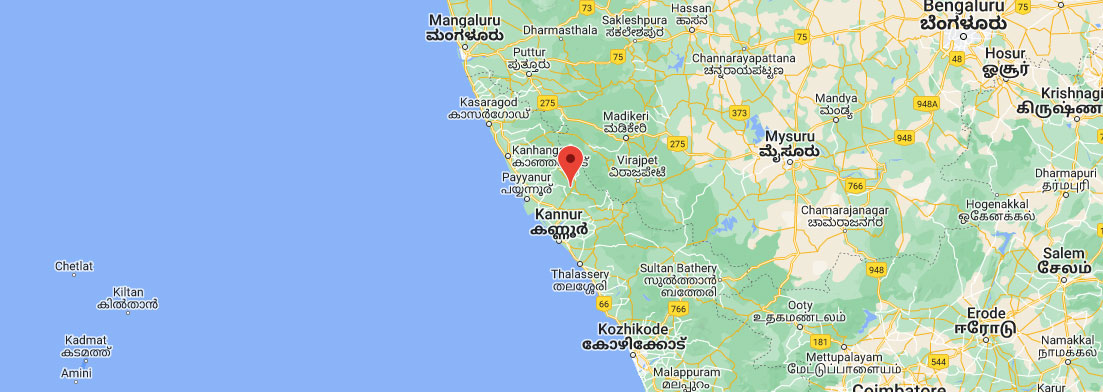
ONE YEAR ON - MEASURES IMPLEMENTED
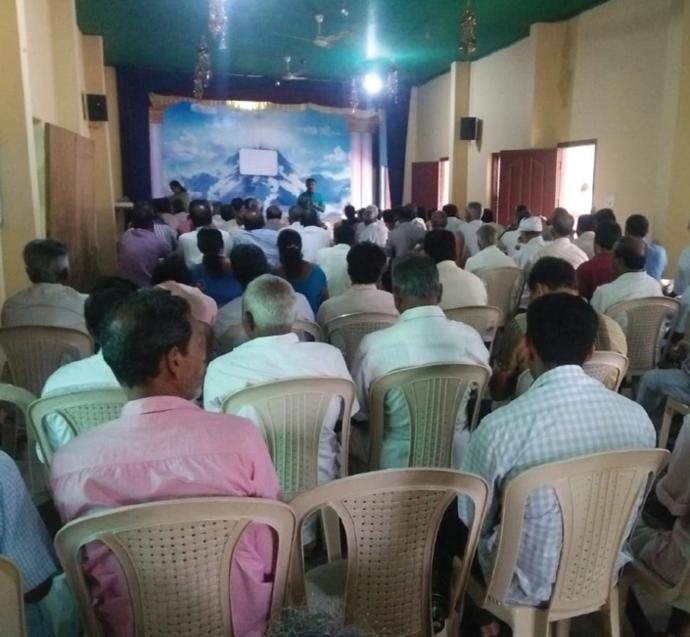
Flood Relief Aid for Cashew Farmers
1210 farmers benefited. Total outlay CHF 29'684
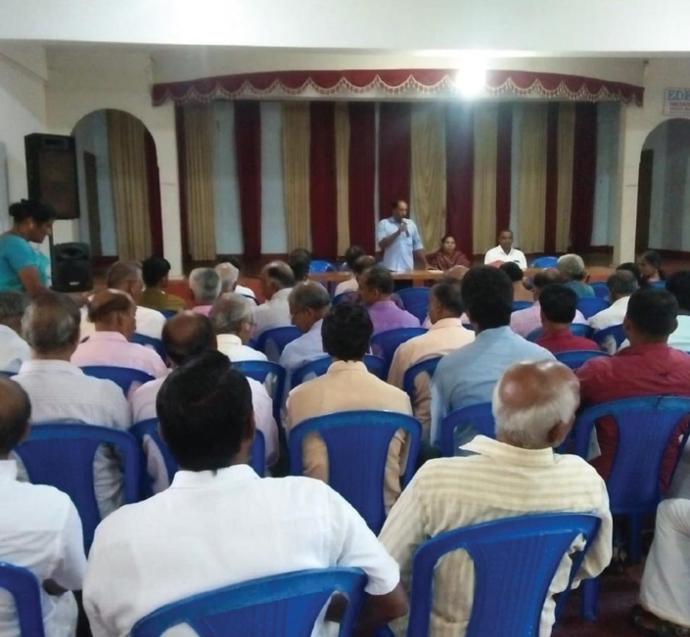
Flood Relief Aid for Coffee Farmers
665 farmers benefited. Total outlay CHF 21'528
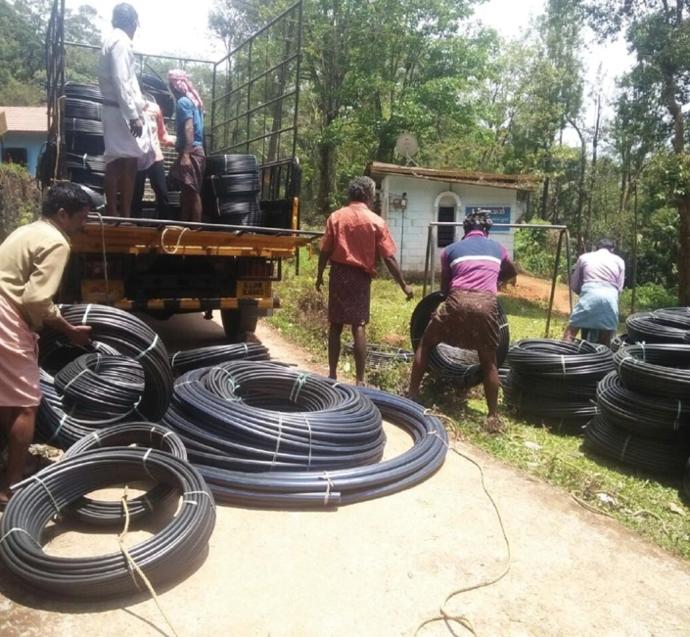
Drinking Water Supply
Distribution of pipes for channeling drinking water from natural springs: CHF 1'840
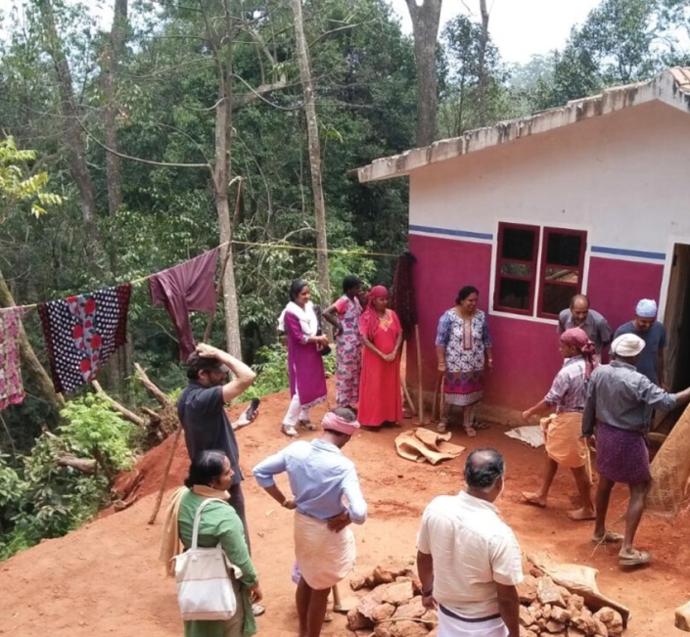
Reconstructing Basic Amenities
130 farmers benefited. Total outlay CHF 1840
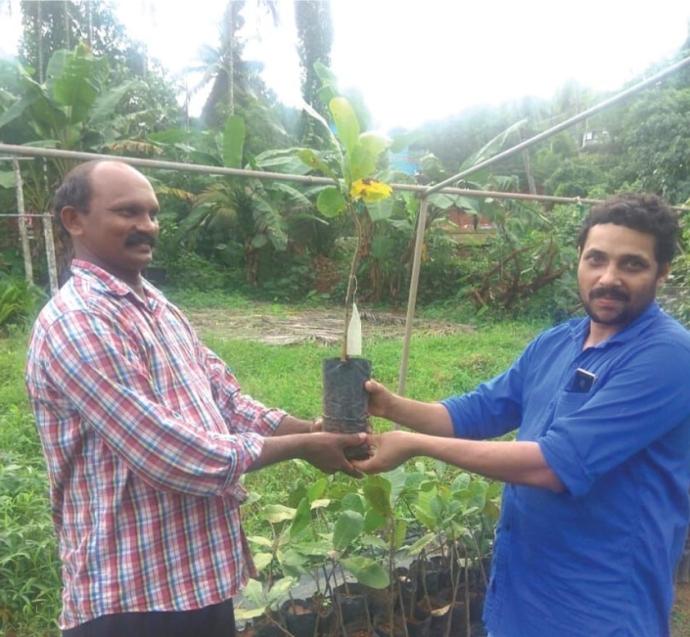
Cashew (5000 Nos)
420 farmers benefited. Total outlay CHF 2'788
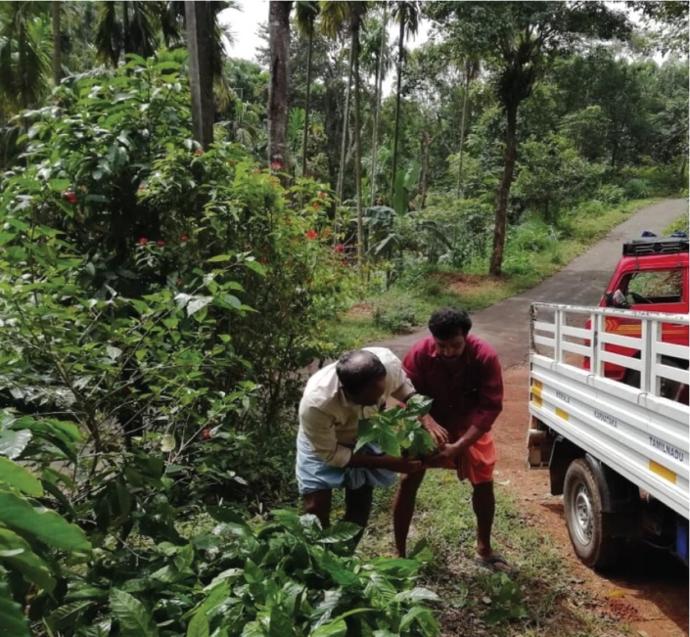
Coffee (40000 Nos)
400 farmers benefited. Total outlay CHF 5'576
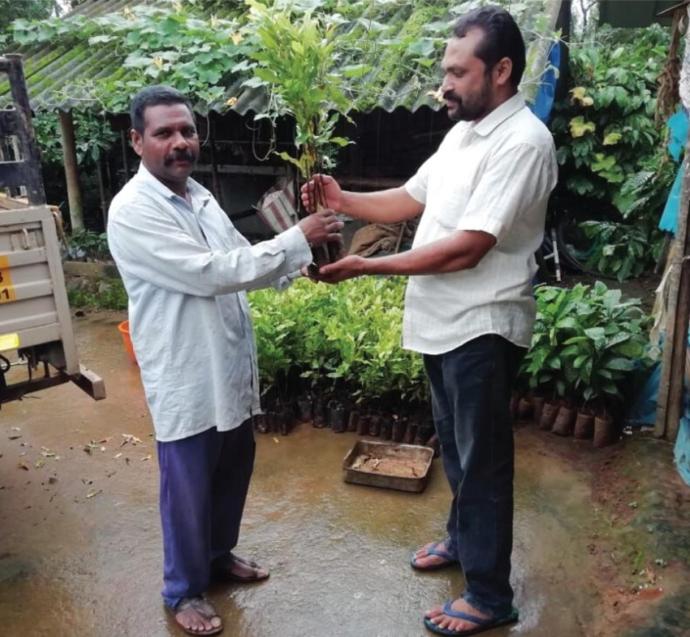
Clove (10000 Nos)
500 farmers benefited. Total outlay CHF 4'182
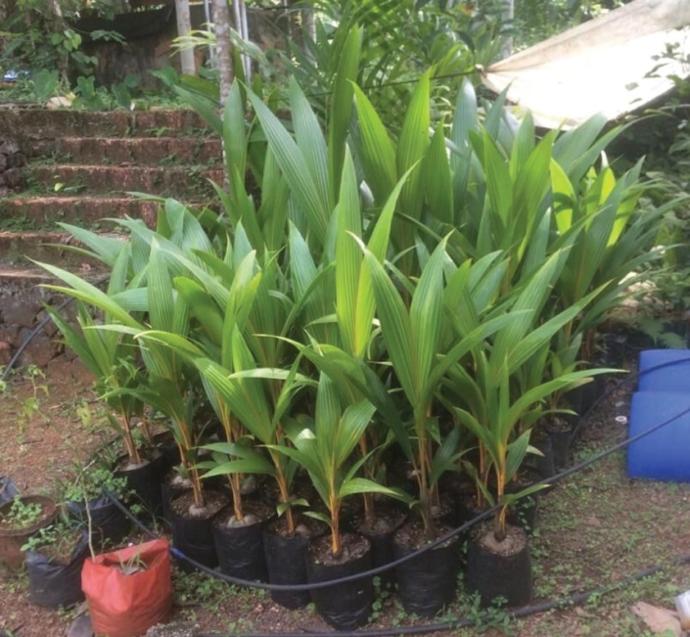
Coconut (500 Nos)
166 farmers benefited. Total outlay CHF 1'115
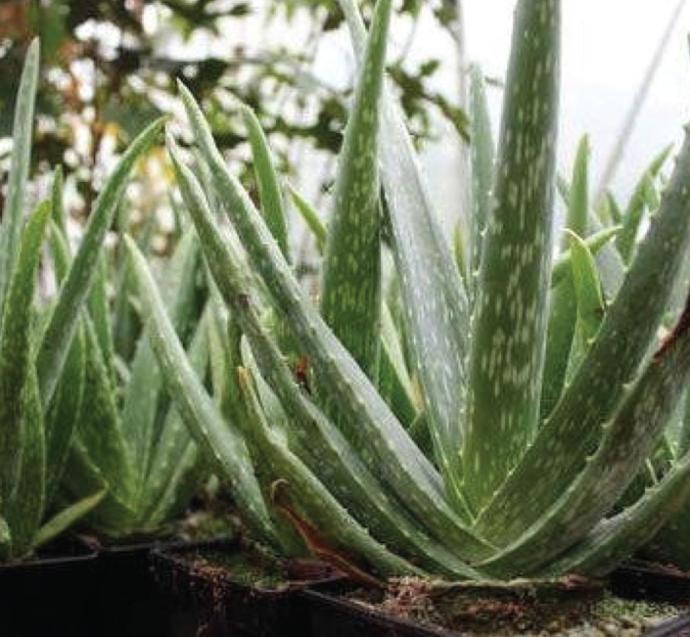
Alovera Plants
Supplied over 2500 sapling among 150 farmers. Total outlay CHF 697
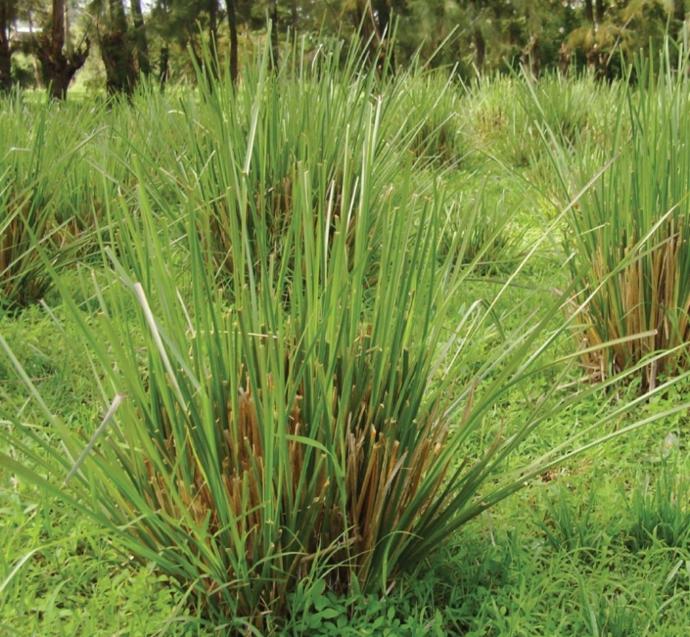
Vetiver Plants
Distributed more than 5000 sapling among 150 farmers. Total outlay CHF 1'394
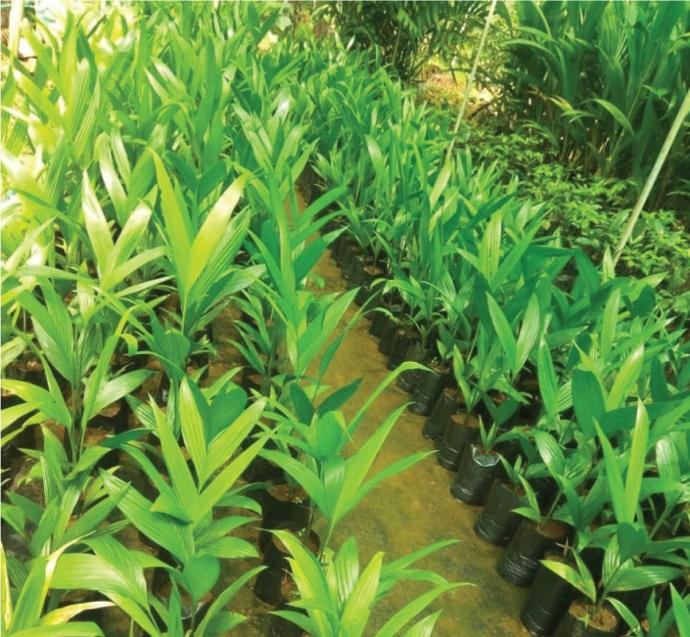
Aracanut (500 Nos)
65 farmers benefited. Total outlay CHF 209
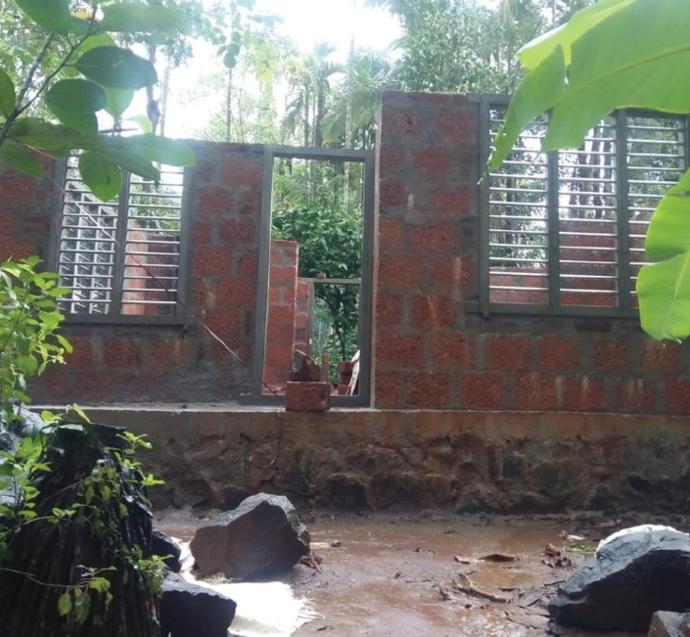
House Renovation Aid
3 farmers benefited. Total outlay CHF 320
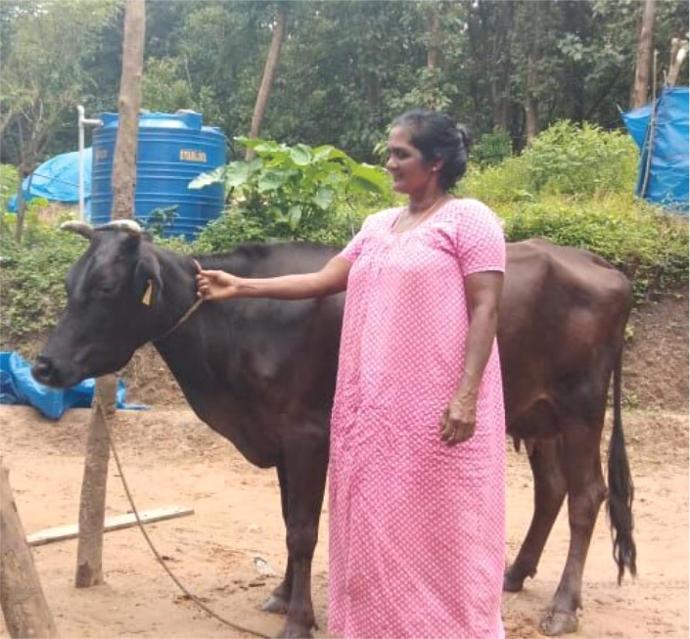
Milch Animal
44 farmers benefited. Each farmer paid CHF 418 = CHF 18'392
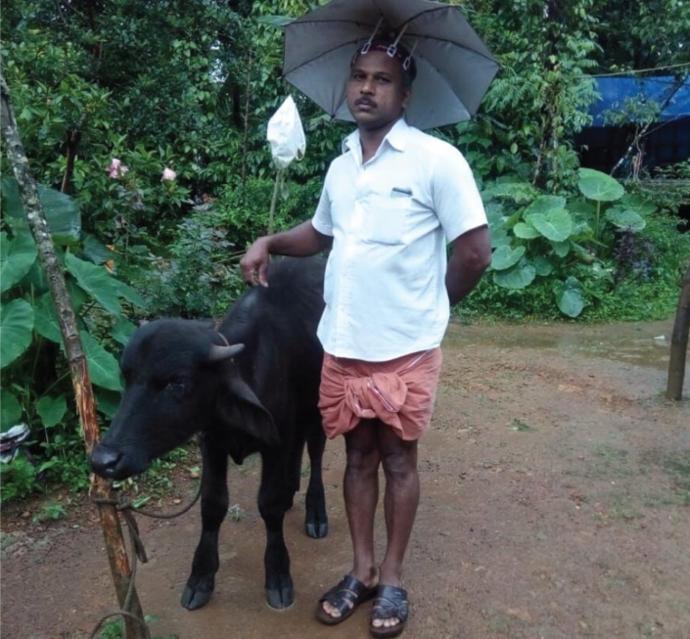
Calf Breeding (Buffalo)
53 farmers benefited. Each farmer paid CHF 112 = CHF 5'936
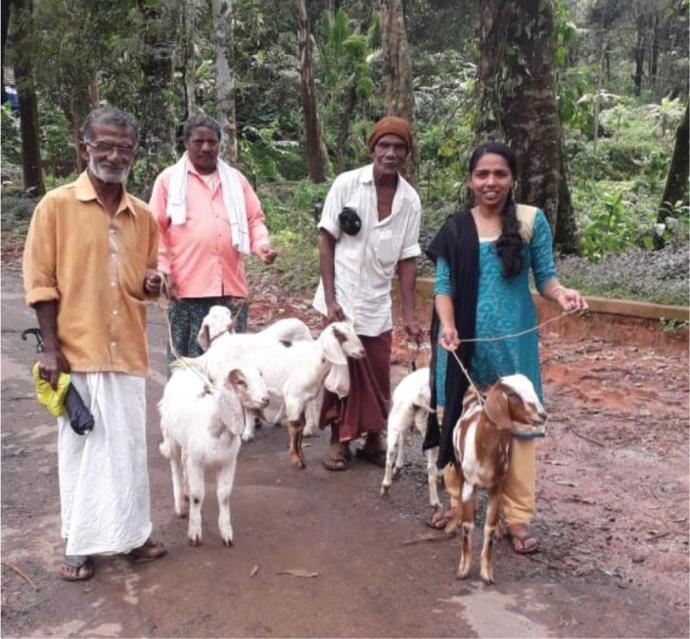
Goat Breeding
70 farmers benefited. Each farmer paid CHF 70 = CHF 4900
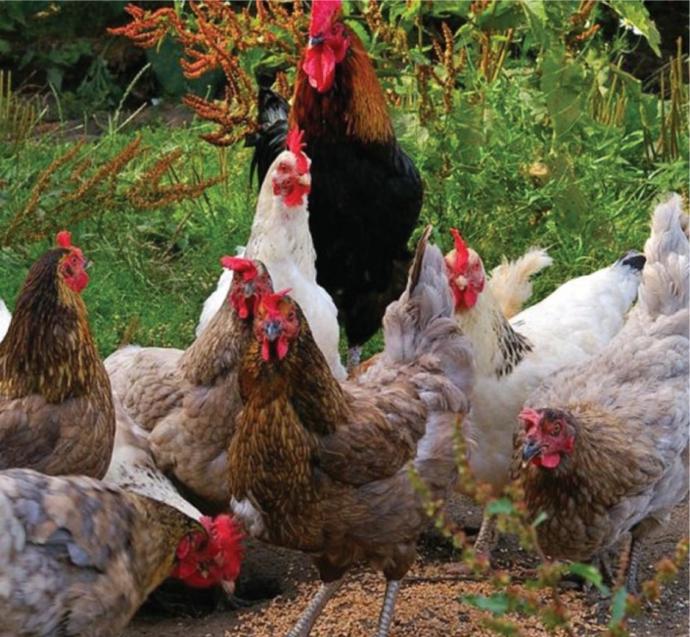
Poultry Unit
240 farmers benefited. Total outlay CHF 6'690
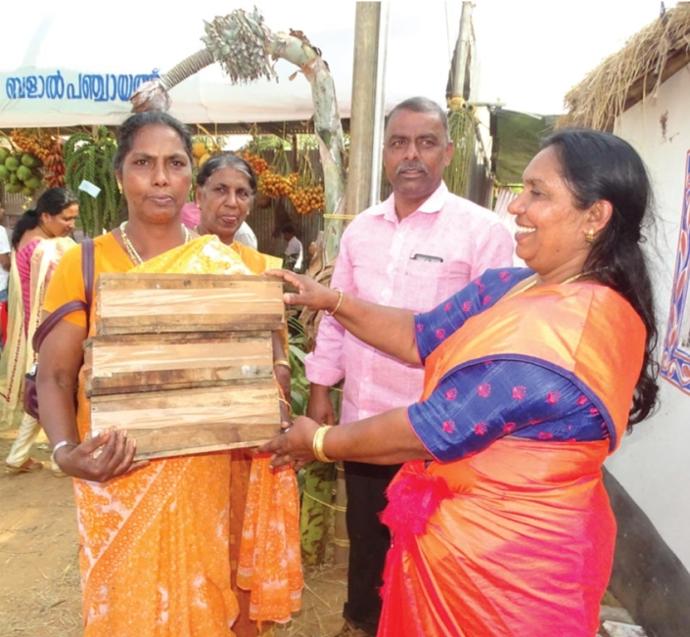
Bee Keeping
Distributed 110 Beehives among 22 farmers. Total outlay CHF 1'763
Find out more here about how the Fair Trade Alliance Kerala is now using the money it received:
(Blog-Auszug FTAK – Fair Trade Allicance Kerala:)
Our appeal for contributions to our reconstruction efforts met with an overwhelming response from our customers, well-wishers and friends. The following organisations have made a significant contribution. Coupled with individual donations and FTAK's own contributions, they have helped raise INR 10 million for our reconstruction.
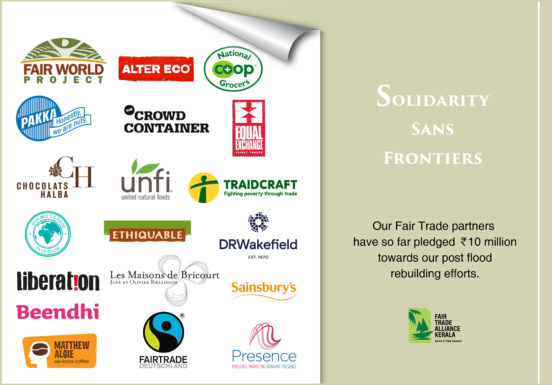
What has happened so far?
Emergency aid after the flood
- Cash for families in relief camps, clearing accumulated rubbish from houses
-> FTAK members from all four districts came to Sugandhagiri and carried out clean-up work - Supply of pipework for drinking water. 10 kilometres of pipelines were purchased and delivered
-> all FTAK members in Sugandhagiri now have clean drinking water at home
Starting signal for reconstruction - Seed Festival with motto "Seeds of Survival"
The Seed Festival at the end of January 2019 was the official starting signal for the reconstruction after the floods. The motto of this year's festival was "Seeds of Survival". The Member of Local Self Government and Member of Legislative Assembly, Mr Shadevan and IC Balakrishnan MLA respectively, officially launched the reconstruction programme at the Seed Festival.
At the Seed Festival, there was a stall where farmers could find out about all the different programmes, facilities, loans, subsidies and incentives offered to farmers under various government and semi-government schemes. The Ministry of Agriculture sent its staff to the stall to explain the various programmes and clear doubts among farmers.
FTAK Secretary General Thomas Kalappura presented the accounts of the proceeds from the Sugandhagiri reconstruction appeal and presented the plans and budget for the utilisation of the funds generated.
Seven workshops and an agricultural exhibition focussing on climate-resilient agriculture, flood protection measures and additional income opportunities were held on the sidelines of the Seed Festival. Climate resilient pepper and coffee growing practices, seeds that can withstand climate change and biodiversity in agriculture to mitigate the effects of climate change were the topics of the workshops on agricultural practices. The use of geotextiles (made from coconut fibre) to prevent soil erosion and rebuild topsoil was a workshop that had immediate practical relevance for reconstruction.
Highlight "Distribution of gift vouchers / seedlings":
A highlight of this year's Seed Festival was the decision by the FTAK District Committees in Kannur, Kasargode and Kozhikode to donate 10 per cent of all the seeds they bring to the SeedFestival to Wayanad farmers who are most affected by the floods. Annadana Seed Savers from Bangalore, who could not attend the SeedFestival, ensured that they sent a large quantity of seeds through friends from Banglaore who attended the event. These and the first instalment of seedlings were distributed to the farmers at the end of the SeedFestival. But the majority of the saplings will be distributed just before the monsoon, the planting season in Kerala.
The identification of farmers eligible for aid has been completed. Aid will be released in the coming months and should be finalised by June 2019. There are some activities that will continue into the year - soil rehabilitation, support for value-added product initiatives, group farming initiatives, etc.
More information about the reconstruction will follow.
Thanks to the support of numerous supporters, we were able to successfully complete two predefined phases and transfer an amount of over CHF 31,000 to the Fair Trade Alliance in Kerala in January 2019. With this financial support, the small farmers of the cooperative can gradually repair their most immediate damage after the severe floods of the century in August 2018 and thus look to the future with more optimism.
Overview of use of funds
The following overview shows the deductions we had to make in per cent.
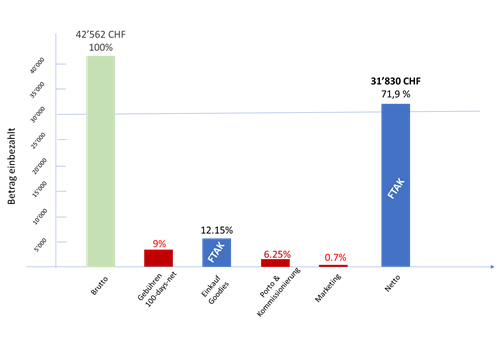
Of the total amount received totalling CHF 42,562, we had to transfer 9% to the crowdfunding platform 100-days.net.
12.15% was spent on the goodies ordered, such as the cashew nuts. However, this amount of CHF 5,172 also benefits the FTAK in full, as this amount represents the purchase costs for the cashews for the goodies.
6.25% manufacturing, postage and commissioning costs were incurred in order to send the ordered goodies to the supporters' homes.
A small portion of 0.7% was incurred as marketing costs.
In effect, we were able to transfer CHF 31,830 plus CHF 5,172 for the cashews to the FTAK!
Around 4,500 small farmers and their families are organised as a cooperative in the Fairtrade Alliance Kerala/Elements cooperative. Tomy Mathew founded the co-operative in 2005 to help the farmers in his home region earn a better income.
A few years earlier, in 1999, Tomy Mathew and his wife opened one of India's first organic shops in Calicut on the Malabar Coast. As in other places, there was a growing awareness in India of the negative consequences of agriculture based on monoculture farming methods and the use of pesticides. His commitment was pioneering, but his start was rather slow. He was slow to build up a loyal customer base. However, in order to offer the 60 farmers who initially supplied his shop a regular and secure income, he ventured into the export business in 2006. One of his first customers at the time was the Zurich-based company Pakka.
Inzwischen sind es über 4’500 Kleinbauern, die der FTAK angeschlossen sind. Auf der Grundlage der Kriterien des fairen Handels erhalten die Kleinbauern garantierte Mindestpreise und sind dadurch gegen die Schwankungen der Weltmarktpreise im Rohstoffhandel gefeit.
In the hills of the Malabar region in the Sugandhagiri project area, these small farmers from the cooperative cultivate their land in a sustainable manner and rely entirely on organic farming methods. FTAK was the first Fairtrade-certified producer organisation in southern India.
Tomy Mathew's strong commitment to the Fair Trade Alliance Kerala (FTAK) plays a key role in ensuring that the existing biodiversity of the region is preserved and that the small farmers cultivate and care for their cashew trees and deliver the harvest to their depots. Unfortunately, the pressure of world market prices means that in some places farmers are favouring more popular crops and old varieties are slowly disappearing. It is therefore all the better that Pakka, through its collaboration with FTAK/Elements, can help to ensure that this happens less often. Today, cashews, coconut, cocoa, coffee and spices are grown and cultivated in mixed crops.
Elements then trades in precisely these raw materials, which are always both "Fairtrade" and "organic" certified. This is part of the philosophy that unites us: Our joint business activities must never be carried out in isolation from people and their environment, but must always be viewed and accounted for as part of a larger whole - both economically and ecologically.
The additional price that the raw materials fetch when they are sold not only benefits the small farmers themselves, but also a project for the general public. This has made it possible to build a new school kitchen, for example. In India, school kitchens are an indispensable contribution to the community of the less fortunate, as they provide children from poorer families with a free hot meal a day.
Pakka was founded 12 years ago through the collaboration with Elements & FTAK Kerala and thus we have a special relationship. Pakka is proud to walk this path with these wonderful people and their products and to be an "ambassador" of their stories in Europe.
At the end of August 2018, the Indian southern state of Kerala was hit by the heaviest monsoon rains in almost a century and the floods caused enormous damage.
The approximately 4,500 small farmers of the long-standing partner - the cooperative "Fair Trade Alliance Kerala - FTAK" with their cultivated products cashew nuts, spices, coffee, cocoa and coconut products in the Sugandhagiri project area are also affected. The many landslides in the mountains in particular, caused by the heavy rainfall, led to enormous losses of property and crops. Fortunately, the smallholders themselves are in good health and there are now over 4,500 smallholders who are members of the FTAK. Based on the criteria of fair trade, the smallholders receive guaranteed minimum prices and are thus protected against fluctuations in world market prices in the commodity trade.
Damage, harvest and yield losses totalling around 885,000 euros
The monsoon season is now over and the difficult and lengthy task of reconstruction is now dominating the daily lives of the small farmers in the "FTAK" cooperative. As a first step, an FTAK (agricultural) committee has initiated emergency aid measures and paid out financial aid to the small farmers for the next harvest in December/January. The damage to the houses and farms was then recorded and assessed, and a roadmap for reconstruction was defined. The total damage amounts to around 885,000 euros.
In these difficult times, Pakka is supporting the "FTAK" and the small farmers behind it and will pre-finance the agricultural reconstruction and the coming harvests.
But more is needed, which is why Pakka, together with Crowdcontainer, wants to support the reconstruction of the plantations, houses and infrastructure with this campaign.
Pakka and Crowdcontainer wish the Fairtrade Alliance a lot of energy in its development and that their harvests will soon be "Pakka*" again.
Legend: *Pakka comes from Hindi and originally meant cooked, ripe or solid.
The difficult and lengthy task of reconstruction now determines the daily lives of the small farmers of the "FTAK/Elements" cooperative. Immediately after the heavy monsoon floods, the cooperative initiated immediate measures and supported the smallholders with emergency financial aid. FTAK also took stock of the damage to the houses and farms, assessed them and defined a roadmap for reconstruction.
This roadmap is divided into short-term, medium-term and long-term measures and capital requirements.
LEVEL 1: EMERGENCY AID/SHORT-TERM AID
Clearing and repairs (water pipes/temporary roofing materials, utensils, clearing minor landslides, stones and rocks, restoring access to houses and land)
Costs: Euro 10'200.-
STAGE 2: REPAIRS TO HOUSES, FOUNTAINS, PONDS - MEDIUM-TERM AID
Repair of partially damaged houses, wells, ponds, cattle sheds etc., land restoration, replanting of crops (cashew trees, coffee, pepper, cardamom)
Costs: Euro 25'280.-
STAGE 3: NEW BUILD HOUSES
New buildings of the completely destroyed houses (number of houses 8)
Costs: Euro 66'900.-
LEVEL 4: INCOME PROTECTION
Provisions for crop failures of small farmers.
Costs: Euro 60'000.-
STAGE 5: AN IMPROVED FUTURE
Removal of landslides - land reclamation, measures to prevent soil erosion in the fields (500 farms)
Costs: Euro 60'000.-
